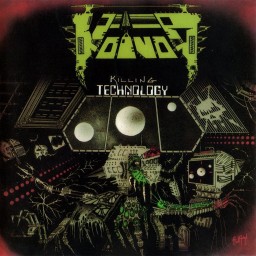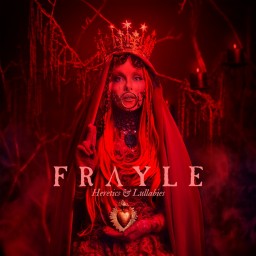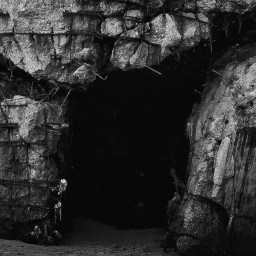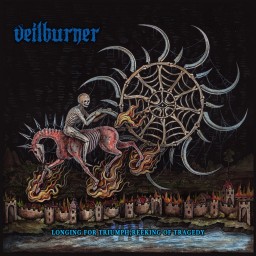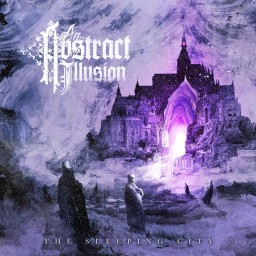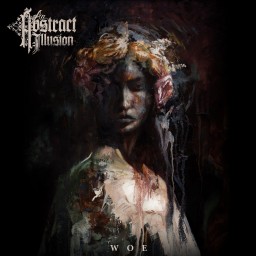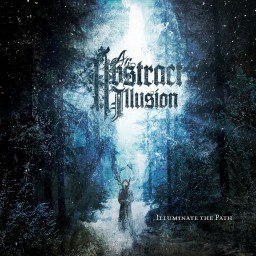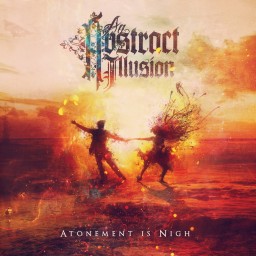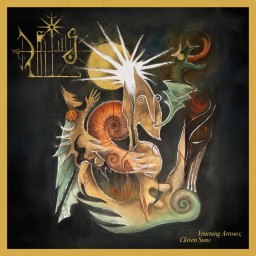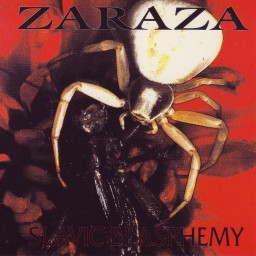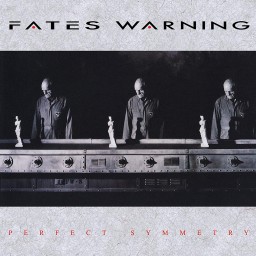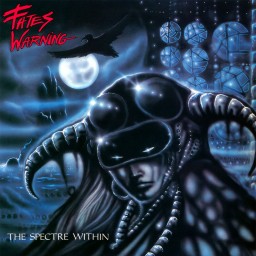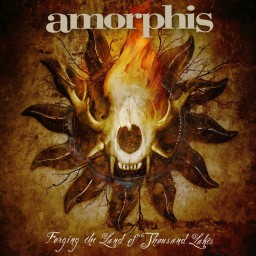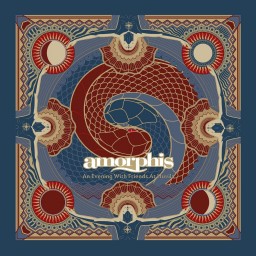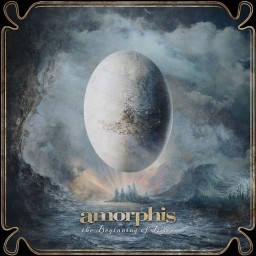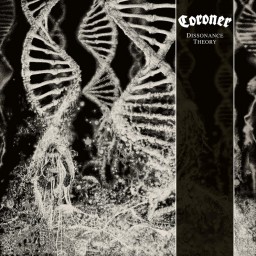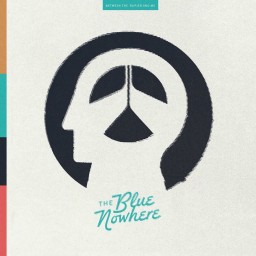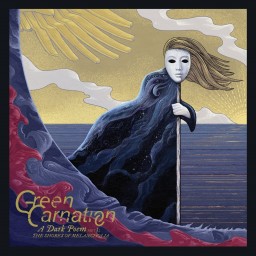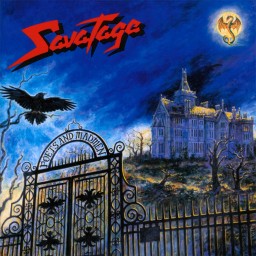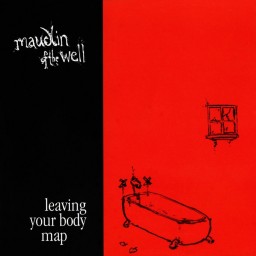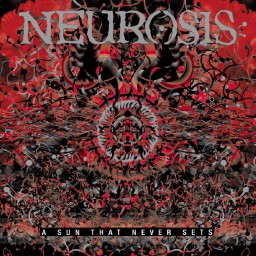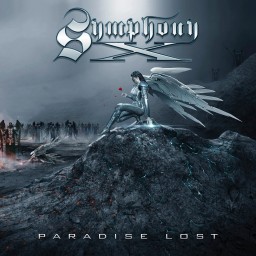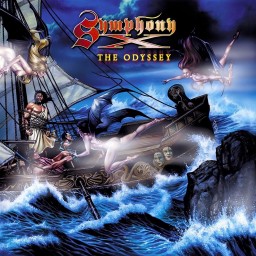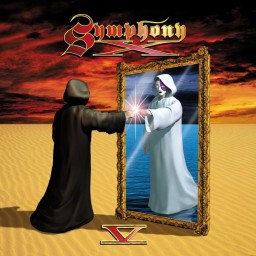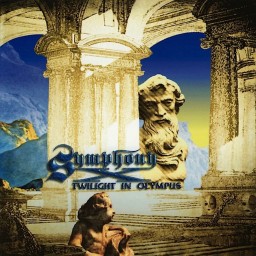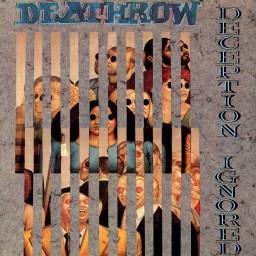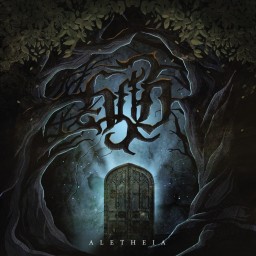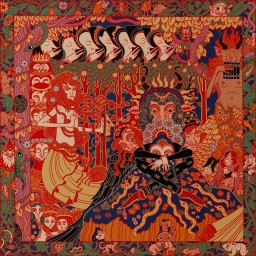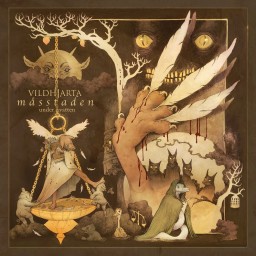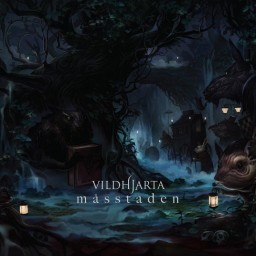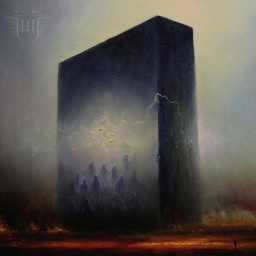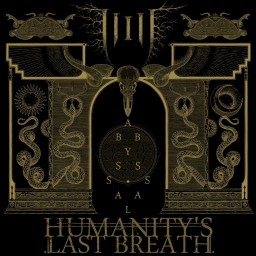Latest Reviews
Dreams D’Azur is a re-imagining of Novembre’s debut album, Wish I Could Dream it Again… The album is completely re-recorded with new compositions and played in their newer style. Wish I Could Dream it Again… is a Death Doom record through and through, while this one trade some of the Death Doomy sound for a more contemporary Progressive Gothic Metal sound, though still retaining the Doom influence.
The biggest weaknesses with the debut were the rough production and amateur performances. It goes without saying that both issues are completely mended here. Through the years, Novembre have adopted a smooth and lush production style that contrasts and compliments their heavy style, allowing for dense compositions that sound fantastic. The bass is given especially great treatment on this album, being very audible and having plenty of excellent lead parts. The playing as well has improved dramatically, with the band transitioning from a slightly messy, green footed band to masters in their genre. The drumming on this album in particular is the best in the band’s career up to this point. The poor clean vocals from the debut are improved with harmonized, reverby vocal lines that act more like another layer of instrumentation.
What about the compositions? One issue the debut had absolutely no problem with was compositions. Novembre were already crafting amazing songs right from the beginning, and in my opinion the debut still stands on its own as an amazing Death Doom record. Here, the compositions become a bit denser, with scant layers of synths and more atmospheric guitars weaving in and out of the compositions, crafting a much more dreamy and surreal feel than the debut. From a technical standpoint, the compositions are improved quite a bit, and have more going on in each track to add to the density.
However, I will say, it’s a trade off for me. While almost everything has improved in terms of quality, I do find myself… preferring the original style. Progressive Death Doom is, to me, preferable to Progressive Gothic Metal. I loved how heavy and melancholic the original songs were, how they charged forth with energy rare to the genre but carried intense gloom and beauty. As I said before, these compositions lean a bit further to the “dreamy” side of things, and they definitely still sound amazing. But, unlike a lot of people who think this album completely negates the debut, I see different strengths in each, and this far from eclipses the original in my eyes, instead offering a different take on the incredible compositions.
Deliverance. Opeth’s last Death Metal record, and one of the heaviest of their entire career. In somewhat uncharacteristic fashion for the band, opening track “Wreath” drops you right into the onslaught of pummeling rhythms, deathly screams, and one of the most ominous riffs the band ever wrote. The increasingly complex and odd-timed songwriting here just makes everything that much more disorienting – “Wreath” is a straight up challenging song that mixes the heaviest and brainiest of Opeth’s compositional prowess into one package that just completely annihilates you.
After that, you’re given a bit of space to breath… kind of. While “Wreath” is definitely the heaviest and most aggressive song on the album, that’s not to say the following tracks are worse in any way. Title track Deliverance focuses on pushing the band’s technicality and complexity to its limit, an over 13-minute epic of masterful musicianship and songwriting. “A Fair Judgement,” not forgetting what makes this band so special, reintegrates deeply melancholic moodiness, a Doomy dirge of Prog that shows the band had not sacrificed their emotional depth when honing their technical abilities and pushing the complexity of their songwriting.
The album is, pretty consistently, dark, ominous, heavy, and complex. More so than any of their previous albums. For that reason, it’s definitely a bit of an all-or-nothing affair; it’s the perfect fix if you’re in the mood for some uncompromisingly dark and brainy Progressive Death Metal – if not, prepare to drown in its unrelentingly ominous waves.
I was quite blown away by Agalloch’s debut album. Despite the music being relatively simple, they were already masters at crafting melancholic guitar leads and somber chord progressions that evoked a dark, emotional atmosphere. The songs were so memorable they sounded like a band that had long since mastered their craft rather than a debut. I had high hopes for their next album.
The Mantle is usually regarded as not only the band’s best, but one of the greatest Metal albums of all time, particularly standing as a monolith of Post-Metal. However, the first thing that stands out about this album is that not only is there a lot less extreme Metal (Black Metal influences here are relegated to secondary) but there’s also just a lot less Metal in general. There is so much Folk (primarily Neofolk and Dark folk) that it competes with Post-Metal as the primary genre for the album.
Thanks to this folkiness, the album is exceptionally pagan and nature-oriented, the whole journey feeling like a lonely camping expedition in the dense Cascadian forest mountains of North America. Constantly stumbling upon native burial grounds and bygone mythology while trying to escape the thoughts and feelings of the girl who just left you. This is all captured in spades, and the shift in sound from their debut creates a far more unique experience that even today remains an enigma.
The songwriting for the most part weaves acoustic passages both between and within the Metal tracks, layering guitars atop one another as they build towards crescendos. Many simple but effective guitar melodies will slowly change and build upon each other in a slightly droning fashion, resulting in a smooth ascension towards harmonic peaks. There ARE still extreme Metal sections left, and such passages with black shrieks and pounding double bass drums provide much needed energy and aggression to the otherwise passive music.
Now for all its praise, I must say, the album was a slight disappointment and step down from the debut for me. Some of the acoustic oriented tracks just sounded a bit too generic – like your average campfire dude with a guitar playing the 6 chords he knows. There is a lot of instrumental stuff here, and while some of it is exceptional (Odal, the second half of The Hawthorne Passage), other tracks just feel a bit pointless (A Celebration for the Death of Man, The Lodge) like they don’t have a strong enough idea to make them their own song, and would have been better worked into a longer track rather than standing on their own. The lyrics and vocals are quite enjoyable for me, so the final track A Desolation Song is quite good thanks to the personal, introspective lyricism despite the exceedingly simple music; the aforementioned instrumental tracks are sorely lacking because they don’t have any poetic lyrics to make up for their uneventful songwriting.
Another thing I will say – the shift away from extreme Metal towards Folk, and much of this album being clean and acoustic, makes it FAR more accessible. I have to wonder if the only reason it’s considered such a masterpiece is because it can be enjoyed by far more people than a Black Metal album can.
Let there be no mistake though; this is a FANTASTIC album. The ONLY reason I have some harsh words for it is because I am coming off of their incredible debut, and had my expectations set to the sky. If I had heard this one first, I think it would have blown me away in a totally different way. Incredibly unique experience in the Metal spectrum. I recommend this one for a nature hike in winter.
Always love to hear Neoclassical acts that are actual bands rather than First Name Last Name guitar (or keyboard) heroes. As you might expect from a Neoclassical band, Time Requiem is filled to the brim with awe-inspiring solos that boggle the mind. But not just from the guitars.
Yes of course, the guitars are majestic. The smooth running up and down scales while essentially tremolo picking is just wild to me. Thankfully, the guitars do much more than that, offering great riffs and more traditional style guitar solos as well that offer more depth than Yngwie-style wankery. Keys are another key component (ha) to this lineup, and yeah, the keyboardist does some insane wizardry that could put any classic pianist to shame. I mean, the keyboardist is the composer, so not only is he an absolute madman at his instrument, but he’s a strong songwriter as well. Keys and Guitars duel here, but they also give each other space to show off without competing for the spotlight depending on the song.
But this album isn’t just a melodic showcase! The RHYTHM section is also flashy as hell. Obviously harder to hear, but the bassist is putting in some crazy work on this thing. It can best be heard in the mind-blowing ending to “Brutal Mentor” (which in itself is just one of the best displays of technical musicianship I’ve ever heard). And the drums! God those drums are great. Speedy, technical, progressive, and doing the perfect amount of showing off insane chops without overplaying. And of course, lets not forget the vocals. Vocalist Apollo was in one of my favorite short-lived Neoclassical bands Majestic, and he helped elevate their accessibility with fantastic choruses. He does the same here.
For anyone who enjoys technical prowess in musicianship and songwriting, a must-listen. For those who don’t, it’s thankfully full of great songs that are well-written and worth much more than their technical prowess alone.
Avant-Garde Metal is one of the subgenres in which I am hardest t please. At the time of writing this, I’ve been listening to Metal for over 15 years, and haven’t awarded a single 4.5 star rating to an Avant-Garde Metal album. That is, until I took look into The Sham Mirrors.
First off, the album does something VERY important in ensuring that it’s a GOOD Avant-Garde Metal album – it’s not Circus Metal. While the album sounds bizarre and occasionally playful, it by no means ever falls into goofy territory. The arctic space aesthetic is persistent across tracks, painting a cold, surreal image of a distant future among the stars.
And then we get to the music, which is very very good. It definitely took a few listens for the non-Metal sections to grow on me (this is a very eclectic piece, with genre shifting within almost every track) but there’s a very important reason it did. You see, while each track jumps between multiple genres, they don’t feel fractured or jerky. It never feels like the band is just genre hopping for the sake of being quirky and weird. Even when shifting styles, the band retains their cold, special aesthetic. The evolution of each track feels connected, falling and rising in a fashion that feels earned. Despite the eclecticism here, there isn’t a moment that left me bored.
The Metal, which is still the meat of the album, is fantastic Symphonic Prog Metal, and the vocals, both clean and harsh, fit nicely. Drumming is fantastic, guitar leads are striking, energy is at perfect level, and tempo and intensity rise and fall to suit the music. No weak points, no wasted moments. I won’t lie and say I didn’t enjoy some sections more than others, but wow is that a well put together record, a triumph of one of the hardest genres to do well in my opinion.
Oceanic is a monstrous record, a storied masterpiece in the genre of Atmospheric Sludge, and the first Isis release to show the band with a fully developed sound and knack for building dense, layered atmospheres.
Or so they say. While listening to Oceanic, I have to confess I found myself underwhelmed. The guitars in particular are very repetitive and simple, almost exclusively power chords changing ever so slightly. They do layer nicely, yes, and the production helps gives them a heavy, dense yet smooth sound. But lead guitarwork is scarce, simple and quiet, almost completely drowned out by the repetitive chords. Similarly, other layers of effects, which usually create the rich atmosphere typical of Atmosludge, are subtle or absent, leaving the compositions surprisingly… shallow.
There are a significant amount of Post-Rock sections here, where the heavy guitars subside to let other instrumental parts have some time to craft quiet, layered soundscapes. I think these parts are done quite well, and they add great diversity to the long, plodding tracks. The contrast between these sections and the droning, repetitive heavy chords elevate both and help eliminate fatigue from the latter.
The saving grace of this album, to me, was the lyrical concept. I was far more interested in the songs once I learned of the concept and paid close attention to the lyrics and how the songs work to evoke the same mood and themes as the out-of-order story. There is a consistent aquatic feel to this album which gives it a unique atmosphere, and the twisted, troubled sexual undercurrents add to the tensity of the dissonant atmospheres.
Some Atmospheric Sludge albums have the issue of having a few really incredible tracks or moments within the tracks surrounded by long stretches of filler. Oceanic is actually quite the opposite; it is extremely consistent throughout, even among stylistic changes, the only exception being the useless untitled interlude. This means as a full album, Oceanic is a much easier listen than many of its contemporaries; however, it also lacks any memorable peaks or crescendos that truly stand out.
It's a strong album with some impressive walls of atmosphere and compelling themes and lyricism. But one of the best Atmospheric Sludge albums ever? Personally I would have to disagree. A VERY solid and consistent example of the genre, but nowhere near my favorite.
Mind-numbing. No, I don’t mean in a good way. I mean, by the end of the first track, I had taken just about all I could take of one-note soulless polyrhythmic chugging, and then preceded to suffer through 9 more tracks of the exact same thing with no variation. So repetitive is this album that when the atonal guitar noodling that would be terrible in any other context came up in track 3, I was actually excited because it was SOMETHING different. The little atmospheric reprieve near the end of the 4th track wasn’t anything special, but it was such a welcome break from the mechanical assault that my brain was tricked into enjoying it.
I actually like the guy’s harsh vocal sound, but the issue is… again… there’s absolutely no variation. It sounds like he’s trying as hard as possible to maintain one single tone, one note, one delivery… yeah, it certainly fits the music, and I get that’s what they’re going for. But just as with the rest of the music, I was sick of it after one track. Nine more aren’t going to convince me (or 8 since the last track is an instrumental).
Maybe there’s some grand meaning in those lyrics somewhere. I have no idea. This are some of the most pretentious, abstract lyricism since Tool. “Organic Shadows” has some neat lyrics about becoming mechanical, but most this is ‘I’m too smart for you’ cryptic existentialism.
“Spasm” is the most unique sounding song, and by default the best. It’s the only song to feature a different vocal approach, as well as *gasp* lead guitar work. Yeah, when you add guitar leads that actually hit notes and craft melodies over top the mechanical polyrhythmic chugging, said chugging actually becomes listenable. When used as a backdrop for other music, Djenty chugging is fine. The issue with Meshuggah is they make the Djenty chugging the focus – in fact, it’s usually the ONLY thing going on in most of the songs.
To say something respectful, they WERE doing something different and unique, that is undeniable. But I think giving something credit for being unique is overrated. The only thing that matters to me is if music sounds good – this is a hard pass.
Despite not being a fan of melodic death metal or progressive metal, here I am writing a review for an album that is tagged as Progressive Melodic Death Metal. My interest in (trying to) check out all the feature releases each month has certainly paid dividends with The Infinite feature release having enjoyed a fair old amount of plays this past week. If I was pressed to sum up why I have enjoyed The Immortal so much, I would call out the rich and full sound that is on display. The album is by no means a perfect, or even complete package, yet it carries enough positive markers as it plays for me to continue to come back to it.
One of the unexpected positives for me are the clean vocals. A fan of the more aggressive style of vocals that occupy the more extreme ends of the metal spectrum, on this occasion the clean vocals work better than the more traditional growls. I have to agree with Saxy in that the harsh vocals are lacking somewhat. The opening track manages to hit this vocal sweet spot early on in the album and as it continues to play it almost becomes a contest between the two styles, with the cleaner elements a clear victor. If I then factor in other moments such as the groovy riff of ‘The Sojourner’ and the post-metal palate-cleanser that follows on ‘Moonless Sky’ as well as the excellent strutting of ‘The Hounding’, I soon have multiple positives to talk to.
I would however like the lead work to have more direction. What often starts off as luscious sounding injections of melody, never quite seem to expand into any established endpoints. This sense of going nowhere is frustrating, notwithstanding that there is plenty of melody still over the album as a whole. I do feel however that the standout moments as a result are limited and that more interesting lead work, as well as perhaps less harsh vocals would have helped here.
My interest in progressive melodeath has boosted up ever since encountering the perfect discography of An Abstract Illusion. It was a sign for me to revisit some earlier progressive melodeath bands that I enjoyed yet abandoned a few years ago. In Mourning might just be the place for me to start in my journey of redemption, since that was probably the band An Abstract Illusion reminded me the most of. And I'm glad that the first Infinite feature release of 2026 is their splendid new album, The Immortal!
The album was recorded throughout the late months of 2024 and the early months of 2025, following up from The Bleeding Veil released 4 years prior. The Immortal may just have the best sound from the band in many years, sounding so sonic and organic. I can already tell how well-written the album is, in big levels. Slight touches of black metal are added to enhance the cold darkness. It finally saw the light of day at that year's Summer end, released via Supreme Chaos Records. As emotional as their earlier material was, the emotion has reached its greatest height in their quarter-century tenure in this offering.
Of the 9 tracks in this album, the title opener is a moody one-minute intro. "Silver Crescent" blasts off with crushing progressive riffing. Then the vocals enter, as aggressive power is blended with melodic harmonies. "Song of the Cranes" is more progressive while keeping the structure in control. The heavy verses with harsh vocals and melodic chorus with clean singing are a mix that has been used by many bands before yet still sounding unique.
"As Long as the Twilight Stays" is more emotional. Clean sorrow comes in first before more of the intense distortion and vocals. "The Sojourner" is the album's first single. It's the perfect song for anyone up for a lot of aggression with some melody here and there. "Moonless Sky" is an ethereal ballad/interlude, a gentle calm in between storms.
"Staghorn" bites down with pure heaviness, all in the guitars and vocals. "North Star" is an aptly titled song for a somber night trek in the northern lands. The melody and heaviness appear where they need to be. I also like the catchy clean chorus. The 8-minute closing epic "The Hounding" starts slow and doomy then speeds up with all its emotional power. The growls and screams touch my metal heart, and the different riffs and twists keep me up for more. Fantastic!
Emotion reigns supreme in the brand-new In Mourning album. The Immortal hits hard with its aggression and lightening this up with its melody. It's likely the most powerful the band has sounded in years, and with that, let's hope their music stays immortal!
Favorites: "Silver Crescent", "Song of the Cranes", "The Sojourner", "Staghorn", "The Hounding"
The new Lychgate album is likely the last new release in metal that we'll ever get before the new year dawns. And with only over 24 hours before it becomes 2026 in my country, I thought this would be the right album to check out as the clock is ticking down. It's probably the most experimental album of the year, and one that further shows how well I can keep up in The North despite that clan being the least likely for me to ever join.
You want extreme progressive metal more twisting than a supermassive black hole? It's all in this album Precipice! What we have here is the deathly progressive metal of Opeth blended with the avant-garde black metal of Dodheimsgard. Rhythm and melody are covered within heavy riffing, clean leads, and classical keys. The vocals are pretty much what to expect in extreme metal, including chaotic growls and screams. It is also lyrically based on the philosophical works of Forster, Wells, and Eliot, specifically the dark bleakness of humanity's dependence on machines.
The intro of this 9-track album, "The Sleeper Awaits" sets everything up in a haunting fashion, as heard in the piano and orchestration. "Mausoleum of Steel" crashes in with dark aggression balanced out with progressiveness. The devilish harsh vocals in front of the orchestration and metal is so strange yet tempting. "Renunciation" is even darker, further into the center of the world. Leads and vocals unite for a dissonant sound alongside the bass and drums. It's truly a beast lurking in the shadows!
"The Meeting of Orion and Scorpio" turns into clean light tainted by eeriness. Seems like the beast is having its rest. "Hive of Parasites" is a spooky progressive 10-minute epic. It may take some time for listeners to get used to what's going on, but when you do, you can fully embrace it as it embraces you. The vocals stay harsh throughout this cavernous quest. "Death's Twilight Kingdom" has some piano and bass in the intro before the metal beast moves again. Everything keeps changing before you can get a sense of what's happening, like something appears, disappears, and reappears.
"Terror Silence" has a more straight structure that's easy to understandable. Still they have the Opeth-like aspect of shapeshifting riffing. "Anagnorisis" adds to the album's lyrical focus of discovering the true existence of someone else rather than your own. Everything's so dark and deadly, and for me, it's my sweet dessert. Doom is impending... And it comes in "Pangaea". For just 3 short minutes, you feel the black hole engulf you in darkness and death. Then before long, your journey ends on a satisfying note.
Like the edge of a cliff that the album title means, Precipice will give you the feeling of hanging on to your life. It's an experience so unsettling yet pleasant. And in the end, it's all worth leveling up your metal soul!
Favorites: "Mausoleum of Steel", "Renunciation", "Hive of Parasites", "Death's Twilight Kingdom", "Anagnorisis"
I'm not planning on starting a Metal Academy hall on this, but there's just enough scattered throughout this album for me to call it a death metal album. But much of it builds itself on softer vocals, much like Ulver did with black metal, but lacking reverb. While many of the same elements are shared across the ten songs, including the random shifting between prog and melo-death, and occasional folsky elements, there are certain elements that make it hard to pick favorites among the batch, such as the occasional Arabic touches in Enemy at the Gates and Death of a King (and milder levels of it in White Night), as well as the Celtic metal sound of Tree of Ages. As well, there's a level of melody hear that I have to say utterly astounded me as a prog metal fan. While it maintains strong accessibility, it carefully molds all of the essential Amorphis elements together into, as one reviewer here put it, alchemically (I'm using this fake word and no one's stopping me). As an FMA fan, I have to say that the melody here reaches Philosopher's Stone levels of purity. Still, it's impossible not to notice a formula here that makes things a little predictable at the end, but they certainly nailed rocking the formula. I may have to re-evaluate Elegy, but this is currently my favorite Amorphis album (and maybe my favorite Amorphis album cover).
98
Of all the genres I enjoy in my metal journey, there's one I somehow seem to neglect in favor of everything else, post-sludge. I don't think I've discovered much from that genre beyond its Big 4 (Neurosis, Isis, Cult of Luna, The Ocean) and Rosetta. Many of its songs guide you through transcending realms, showing that metal doesn't always have to be about chaos and speed. So when this Dimscua EP was brought into discussion, I thought it was a good time to catch up with what I was missing out on.
And wow, what an EP! Dust Eater is the start of a promising career for this UK post-sludge band. We haven't heard anything new from Cult of Luna for a while, but this offering feels like a solid continuation to that band's sound. Dimscua has only just formed this year, and they already have a lot of emotion and grief in their music.
"Elder Bairn" already sets up the atmosphere with its bleak guitar tone and screamed vocals. The riffing rhythm rises before reaches its height in an apocalyptic explosion. The riff storm strikes down as the screams haunt you like tortured souls. An absolutely devastating start to the adventure! The title track seems a bit stretchy in the rhythm, but that's my one and only complaint. The music still sounds huge and emotional.
Raw emotion continues to shine in "Existence/Futility", with different melodies built to last then built to fall. It's like a strong fight that you end up winning and losing multiple times. And is it all worth it? For sure! "On Being and Nothingness" is the 10-minute final epic and a true example of the post-sludge sound developed by the earlier masters of the genre, proving that it's far from dead. The chords and vocals drift through a dimension of catatonia. By the time it all ends, you become one with the astral plane. A dark satisfying end to this atmospheric journey!
As cheesy as this may seem in theory, tragedy has turned into art that can easily resonate. The tragedy that is guitarist/bassist Adam Campbell-Train losing his daughter (RIP). The end result is the amazing return of the post-sludge sound we know. Here's to a possible full album from the genre's new chosen ones!
Favorites: "Elder Bairn", "On Being and Nothingness"
Thundering out of Berkshire, England to truly throw a spanner in my ‘EoY Fallen Album List’ come atmo-sludge quintet, Dimscûa. I would say that 2025 has been the year that I started to explore atmospheric-sludge metal for the first time, its calmer post-metal tendencies offset nicely by the harsher vocal attacks and smothering heaviness of the riffs that are my usual (and still preferred) listening fodder. Listening to Dust Eater sort of feels like I am in familiar territory nowadays which has most certainly helped me warm to it quickly. Hidden behind the straight delivery and more subtle sections, there is a sense of the epic going on also though which adds extra interest into proceedings.
This may just be clever use of guitar tone in all honesty, with some well-placed chiming effect adding some positive volume to the already doughty performance. Dust Eater is delivered with an attack that brings to my mind that each of the band members are grinning with each blow they make in their flannel shirts and jeans – another image I have in my head for some reason. Whilst I cannot describe the EP as uplifting, it does possess a pragmatic approach that gives the music a sense of being constructive without being restrictive. There’s no question that the band have gears they can get through, but they are always in full control, not just when ticking over in first or second gear.
The poignancy in the strings that open the final track, ‘On Being and Nothingness’, set against that haunting ambience that drifts through the background of the track, shows a band who can play with real emotion in their performances. Whilst the subject matter may explore darker tropes, the five-piece are unafraid to display the inherent beauty that can still be found in the themes of grief or loss. Of the content of this sub-genre that I have heard this year, Dimscûa chart pretty highly to my ears.
This ‘atmospheric sludge’ tag that has grown legs in recent years is one that adorns the chests of Chicago’s The Atlas Moth from as far back as their 2007 inception. Granted, I can hear sludge in their sound as well as also being able to hear atmospheric textures, but at the same time there is the intimation of so much more over the course of An Ache for the Distance. Pure doom and stoner metal make an appearance alongside an obvious 70’s rock influence making the album something of a devious demon to contend with. It renders the genre tagging somewhat irrelevant, not that I am even sure how seriously the band themselves pay much attention to whether their sound is ‘atmospheric sludge’ or not.
What is clear on this record is that the performance is unforced, cohesive and very relaxed. It is an album that sounds like a band working free of any boundaries in all honesty which leads to this sense of flow as elements manage to compliment each other nicely. Even with three guitars in play, there is a constant coherence to proceedings. This trio of axes is thoughtfully layered, proving many moving parts can work. Whether it is the post-metal pickings alongside psychedelic loops that ooze through, or the elements of the harsher riffs, there is order to them.
I do struggle with this album though. For as much as I can recognise the quality on display, it does move styles a little too often for me, killing a lot of memorability in the process and leaving sections of the album feeling like they are wandering as opposed to progressing. After a few listens to the album, I could not fight the feeling of it getting stuck in a no-man’s land; unable to shape the obvious promise into a consistent theme. Take the brilliant final third of ‘Your Calm Waters’, a section that shows clear direction but the effort of listening to get there is taxing for me.
It is only the final track, ‘Horse Thieves’ that resonates in its Yob-like glory to the point of finally giving the album some real grounding. That big, slow and doomy riff, alongside the melancholic melody sees both elements played to a tortuously drawn-out pace. The trumpet here, although unexpected, fits well. It gives a soothing drone during the growing chaos of the track. It is a positive note to end on at least, and whilst I cannot reach for my higher scores on this one, The Atlas Moth do enough in terms of their clear quality of playing to manage to also keep the album well away from the lower end of my scores also.
Heretoir are a German atmospheric black metal band that have been around for a surprisingly long time. I had never heard of them prior to being introduced to them late in 2025 and their new record, Solastalgia. And the only reason I gave it my attention at this point in the year is because I was told it was right up my alley in the style of black metal that I typically enjoy. Well, that friend was right because Solastalgia is like a modern day love letter to Agalloch's Ashes Against the Grain.
Now I do need to choose my words very carefully from here on out, because Ashes Against the Grain might be one of my favourite albums of all time. And Solastalgia does more than enough to separate itself from Agalloch. In fact, the main reason why I enjoy Solastalgia so much is because of how much it shares in common with a band like Svalbard. This is huge sounding atmospheric black metal, but with a hip, metalcore front. The promotional single "You Are the Night" and "Burial" are far less in common with Agalloch, but no doubt matching in instrumental beauty. The acoustic passages on "Seasons of Grief", the piano bridge on "Inertia" and the earthly tonal center of "The Heart of December" are undoubtedly Agalloch in presentation.
Perhaps it is ironic then that Heretoir named their album Solastalgia. A word whose etymology is a portmanteau of the words "solace" and "nostalgia". Nostalgia is a word typically associated with positive thoughts and emotions, whereas Solastalgia is the antithesis; where the places and people that you once knew and grew up with have all changed and have become affected by the passage of time. As such, it is less surprising that Heretoir are developing the sound of Agalloch to places that band could have never gone. And with this bands roots in depressive suicidal black metal, the grief and distress felt within the music and lyrics hits with its meta commentary that I never expecting out of a black metal album! Although, if I'm being nitpicky, a few of the lyrical choices to feel quite cliche and could have been written by nearly anyone.
Despite all my praise for the instrumentals so far, I do have to mention the obtuseness in the percussion. I think that it sounds fine and it's performed with an extreme level of precision, I just feel like the drums are mixed way too close to the front. At the beginning of "Dreamgatherer" it begins with a pleasant clean guitar with reverb and before you know it, the percussion is playing on top of you and the guitar melody has nowhere to go. It also becomes rather intrusive during blast beats like the bridge of "Solastalgia" among others.
All told though, I really enjoyed Solastalgia. The band really captured the essence of the word here; an album that has aspirations of Agalloch, brought into the modern age with metalcore and blackgaze textures. It will be a struggle for those who just want to enjoy Agalloch, but if you're willing to come to terms with Agalloch not coming back (and Ashes Against the Grain being nearly two decades old), then I can assure you that this album is a clinic in modern day post-black metal.
Best Songs: The Ashen Falls, You Are the Night, Dreamgatherer, Solastalgia, Inertia
I can't say I'm really a fan of Atheist. Piece of Time was a kind of a let down to me: I can see them being ahead of their time in complexity and technicality, but the band just sounds so convoluted and seems to trample over itself to the point that I don't really enjoy the album very much. This release on the other hand, is a whole other beast! The band sounds somewhat lighter, with a clearer production and better execution, particularly on the vocals, which sound way more on point. Composition wise, they really went through the roof, leaning very heavily on their jazz influences to make what sounds pretty much 50-50 death thrash and jazz fusion. This was very much the correct decision, as this is where the band's insane musicianship and chaotic nature really gets to shine it's brightest, the result being some of the most interesting metal releases I've ever heard, perfectly balancing awesome complexity, sheer heaviness and plain fun. Honestly, not a single bad minute on this, absolutely incredible record.
One can't deny that there's a punk factor in thrash, as much as some purist metalheads might want to. Voivod, however, celebrated that fact by pumping it up. In some ways this is practically a crossover thrash album, and a major step forward for metal inventiveness. Maybe this is largely neglected because the album is so complex? Either way, this is the personality the band has chosen, and it actually helps a lot. Now their technical abilities are quite impressive, but it's the inclusion of the punk factor that keeps the album from degenerating into guitar wankery. While a little samey, the crossover aspects allow the band to display an incredibly unique personality for the time, and just allows the band to have a lot of fun. Hell, the singer Denis Belanger knows it, and boasts his hardcore punk style vocals proudly and loudly. And that's not all: they found a way to include the sci-fi experience here, the whole mechanical, cyberpunk, anti-dystopia vibes both lyrically and musically. As well, the punk factor gives it quite a bit of replay value as well. Now personally, I'd say the sameyness keeps this from a total five stars. But if you said this was your favorite thrash album, I most certainly would never, ever, blame you.
92
Earlier this year, I listened to the debut record from the Cleveland gothic doomgaze band 1692 and I found it a mostly enjoyable, if a little same-y listen. I had very little experience with this sound prior to hearing Frayle earlier this year, so my expectations as to what this style of music could sound like were very slim. It still has the strong foundational presence of a traditional doom metal album, but one listen to those monotone, and heavily modified vocals of Gwyn Strang and you can tell this is not standard procedure.
In relation to this album, I can tell that Frayle have putting in some modest work to improve this sound. Shoegaze is a genre not typically known for its sweeping development and growth so good on the band for taking that style to new heights. While the record is still doom metal, you will notice a few more contrapuntal melodies in the guitars that compliment the vocals very well. The percussion on Heretics & Lullabies also makes big strides forward with the subtle arrangements between the individual tracks; the record does have many similar tempos, but not all the songs feel like they are in the same style thanks to the percussion. And the vocals have some really cool touches; whether it be the Glados filter on "Demons" or the sparse, but effective harsh vocals on "Boo" and especially "Heretic" as a vocal layer instead of being its own segment.
The downside is that the record doesn't really maintain its momentum all the way through. Like with 1692, about half way through, Heretics & Lullabies gets caught in musical purgatory; where none of the songs provide enough distinction to make them stand out among the rest. I enjoyed "Glass Blown Heart", but then "Hymn For The Living" and "Run" sound remarkably dull by comparison. "Heretics" tries to get back on track, only for the final track "Only Just Once" to continue in the same vein as the last song! As for the first half, it's very interesting, but it can also be incredibly cheesy at times, most notably on "Boo". But hey, at least it got me to like a Lana Del Rey song...so that's a big win I guess!
Overall, the record Heretics & Lullabies is a solid improvement from the debut, but leaves me wanting more. Maybe that's asking for too much out of this style of doom metal, but the pacing is mediocre at best and many deep cuts lose their focus. The production is the highlight and keeps the record sounding solid from start to finish. It's an album that would fit right into my sleeping playlist with how peaceful it sounds...and maybe that was the point.
Best Songs: Walking Wounded, Demons, Glass Blown Heart, Souvenirs Of Your Betrayal
For an album that is forty-minutes long, Mass V sub-consciously plays as an EP in my head as the run time appears to go much quicker than that over the four songs on the album. I am not entirely sure if this is because I lose presence with it on too frequent a basis, but even under a few critical listens the effect is the same. My overarching impression from my first few listens has been that the balance of styles is well executed. Amenra drop pure doom riffs seemingly from out of nowhere, whilst constructing with studious detail post-metal passages that ease between more sludge-driven moments, still retaining the overall sense of unease in the process of the ebb and flow.
Tracks such ‘Dearborn and Buried’ are real tense experiences, the atmospherics doing little to ease the sensory overload that comes from the consistent sense of threat in the sound. With desperation a key impression that comes out of the listening experience, especially in the vocal department, I feel that I get to this understanding by way of the sense of conflict between the instrumentation and the vocals. If I use a Stoic philosophical comparison to demonstrate. If we consider life as a crashing and bashing tide that batters against the rock (us) and that we must try to remain steadfast in the face of such hardship, then it is easy to bill the deranged nature of the vocals as being the tide on the instrumentation. Given the obvious talent on show in Amenra though, they cleverly switch this to have the vocals remaining strong against the assault of the instruments.
Yet at the same time, if you take the ending of ‘Boden’ as an example, then it is also clear that both elements can be wielded with great effect, creating the tumult of the storm onto the listener who is now being used as the rock in our example. This “good cop/bad cop” routine works well because it avoids being a disruptive force in the musc. With the epic length of ‘A Mon Áme’ deploying an agonising build-up of over ten minutes, I do sense a weakness in the Amenra line. Whilst it is exhilarating when the riffs and percussion do finally ignite, the length of time to get there feels unnecessary in the end given you can easily predict it is coming.
Thankfully, the balance is restored on final track, ‘Nowena | 9.10’ with what is the most Neurosis-influenced track on the record. Clear in its emotional depth, the riff and percussion structures are quite simple in comparison, and this juxta positioning works well. For me, this is the standout track on the album and is a perfect closer to proceedings. So, having come into Mass V in a dismissive mindset following my experience of the two Eps that the band released this year, this record has restored my interest in them. The album possesses an unusual level of accessibility given its chaotic approach at times. The succinct track listing helps this accessibility as well as belying the level of intelligent songwriting that is on display.
Throughout the years, I can honestly say that I've never had an issue with In Mourning. They have made some pretty solid progressive death metal throughout the 2010s, but every time I visit their music, it either comes at a time when I'm not really interested in that style of music, or another, more potent progressive death metal album has just released which keeps my attention longer. The Immortal is likely the first time I've been able to fully enjoy an In Mourning album and coming to realize just how good they are. The album might have progressive as a primary genre tag, but if you're expecting the kind of wonky, abstract prog metal of Dream Theater or Between the Buried and Me, you'll likely be let down. The songwriting is very solid with some very good melodic themes and dynamics. The growth of some of the themes might be a little lacking, but tracks like "Song of the Cranes" and the closer "The Hounding" show that fully developed motif. The album as a whole is a brisk listen with the expertly placed "Moonless Sky" interlude. My one complaint, which isn't so much of a complaint more than it is an observation, is Tobias Netzell's harsh vocals. For a death metal album, they do feel a little bit on the weaker side; they almost remind me of Matt Heafy of Trivium, which likely means the use of the fry vocal technique. It isn't a determent to the album; in fact, it probably gives the heavier sections a little bit more character than other similar death metal albums, it's just something I noticed that caught me off guard.
This record won't win any "heaviest albums of 2025" awards, but for a few moments, The Immortal was a captivating listen. The fullness of the instrumentation, combined with some very subtle progressive song structures make it stand out. Like In Vain last year, it's surprising that this album made it here as late into the year as it did, but better late than never I suppose!
Best Songs: Song of the Cranes, The Sojourner, North Star, The Hounding
P.S. I thought for sure that I had reviewed this album before once I saw the album cover. It bears a striking resemblance to ...And Oceans The Regeneration Itinerary. Just a friendly warning for those wanting to check this out.
Veilburner seem to occupy the same rarified atmosphere within which I would normally encounter Blut Aus Nord, Dødheimsgard, Deathspell Omega or even Oranssi Pazuzu. They are distantly rooted in black metal yet at the same time are multiple football fields away from the genre. On the death metal side of things there are comparisons I could draw with Akercocke and Portal, which are fine benchmarks to be scored against. With this being my first ever listen to the band, my early impression was that this was not a duo that was with or indeed without their own sound or style. The mish mash of influences that had leapt out at me from what at the time of typing this had been just four tracks was intriguing to say the least. Yet, whereas on other, more avant garde releases I would have either hit the skip button multiple times or simply switched off altogether, there was something that kept me in the room with Longing for Triumph, Reeking of Tragedy.
Now, it could have been that after consecutive days of listening to conventional black metal, I was just more open to something different. Those dissonant tremolos certainly made short work of the seconds as they danced chillingly along my nerve-endings, whilst those squally riffs seemed to rapidly grow a horrifying backdrop of noise for the more extrovert elements to sit atop of. Yet for all the individual elements that are in play at any given time, I have found it very easy to plot my way through the tracks as they pounce on me. There is also enough memorability to them to permit me to understand them as isolated pieces as opposed to the album becoming just one chaotic glut of noise. A more critical listen leads to me to think the reason for this is that the tracks themselves have very clear points of progression. This is perhaps too hard for me to explain in words for some readers, but riffs have a clear start and end to them. Sounds odd I know, yet this element of closure gives me traceability across what could otherwise soon become a disorientating affair.
This succinctness that sits behind the dissonant and transcendental apparitions that are conjured by the rest of the music acts as an anchor almost. I feel that because of it, I can truly pay attention to all the album much better. As a fan of BAN, Deathspell Omega and Oranssi Pazuzu already, there are elements here, such as the vocals, that are not offering anything new most certainly. The admiration comes for the crafting involved in putting all eight of these tracks together. Thematically exploring trauma, death, infinite reincarnation and the desperate futility of lives that make the same mistakes and meet the same end, this is not the most cheerful of subject matters to be committing to tape. Such ideas remind me very much of Akhlys, who are one of my favourite artists over several releases now.
Yet, the more I listen to the album the more I find it veering away from pretty much all the territory I have called it out for inhabiting already. The rich lead work of ‘Ouroboreal Whorl’ and ‘Matter o’ the Most Awful of Martyrs’ have an almost post-metal level of clarity to them, for example. There is a seemingly purpose-built level of tameness to the record that only reaches the surface with repeated listens, and I find that remarkable for such a challenging piece of music, yet I have already called out the concise nature of part of the album already. Longing for Triumph, Reeking of Tragedy is the perfect album title for the work on display here. The record is a triumph yet achieves this with no loss of that sense of stinking human tragedy.
It's safe for me to say that An Abstract Illusion may just be my new all-time favorite band. Each and every one of its 4 releases is a 5-star monumental masterpiece. And it shows that my love for extreme progressive metal won't die soon. The perfect streak continues yet again in their new album The Sleeping City!
The 3rd album from this Swedish blackened progressive melodeath band is another flawless journey. The synths and atmosphere wouldn't be too far off in a soundtrack for sci-fi film franchises like Star Wars and Blade Runner. The heaviness is also fitting for the psychology of humanity. You know the cities that never sleep, like New York and Vegas. Whichever city is referred to in the story is the opposite that, and one to explore if you dare...
The first of the 7 songs here, "Blackmurmur" already cuts to the chase. No 3-minute intro, just a swift entry into one of 3 epics that each last 11 minutes long. Those keys appearing in front lead into melodic riffing for a grand start. The momentum is kept in shape by the heaviness and melody battling each other in the atmospheric wasteland. Truly a vision emphasized by the guitars and keyboards! "No Dreams Beyond Empty Horizons" starts off clean in the guitars briefly, then comes the heavier storm. The guitars and drums strike as the harsh vocals slash, with some light from the cleans. Each side of the coin outshines the other while maintaining the balance. Simple yet complex! "Like a Geyser Ever Erupting" is the song that, after a few years of me stumbling across scattered tracks, has given me a "LISTEN NOW!!!" kind of demand. The fantastic prog-death erupts like a volcano throughout the first two minutes before clean sections starting popping up. By the end, the storm of aggression would indeed tear down the holy mountain mentioned in the previous album.
"Frost Flower" is a smooth track with dreamy melody coming from the synths and clean vocal harmonies. It's not always warm when the cold wrath returns for some time. Still a pleasant break from the storm. "Emmett" is the second 11-minute epic, and when the storm comes back, it's absolute complex rage! The guitars, leads, and keys are all embraced by the chaos that only become somber by the end. Incredible!
"Silverfields" is a short under 4-minute keyboard interlude with some metal at the last minute. The 10-minute title finale starts off heavy in the rhythms. Keys and cleans are still around for the last bit of sanity before all is consumed by a deathly black hole. And then it all ends with piano melody floating in the empty void.
The Sleeping City is filled with the fury, melody, and complexity all expected in blackened progressive melodeath. It's the kind of offering that would make an instant classic and please many more listeners than before. There's enough melody for the softer listener, enough brutality for the heavier listener, and enough intricacy for the more progressive listener. Basically a hidden artifact of progressive melodeath. This will make my top metal albums of this year list for sure!
Favorites: "Blackmurmur", "Like a Geyser Ever Erupting", "Emmett", "The Sleeping City"
An Abstract Illusion is an underground metal band from Sweden, but it is with this album Woe that the band's popularity started to grow above ground to some extent. They've already made progressive death metal history with Atonement is Nigh and Illuminate the Path, and their next album continues that perfect streak. Of those 3 albums though, Woe gets the golden medal!
While the sound here is generally atmospheric progressive tech-/melodeath, other different genres are incorporated. Sometimes it leans into blackened deathcore in the tremolos and breakdowns. Don't get it twisted, this ain't Lorna Shore! The brutality is balanced out with melody from the guitar harmonies and clean singing.
Beginning the album is the intro "The Behemoth That Lies Asleep". Just like the previous album's intro, it's 3 minutes long and starts slow before cranking up the metal. "Slaves" also follows that similar pattern as the heaviest and most deathly song here. "Tear Down This Holy Mountain" is the first of two 10+ minute epics. After a haunting rising intro with clarinet and spoken narration, the heaviness comes back on, with lots of experimentation.
"Prosperity" segues from the previous track, sounding more catchy especially in the breakdown. "Blomsterkrans" is quite long for an interlude at nearly 6 minutes, but it's nice and peaceful with background cello, violin, and a Swedish voice sample.
Heading into the final leg of the album, "In The Heavens Above, You Will Become a Monster" is a 14 and a half minute epic with some of the best progressive death metal I've heard in my life. It doesn't feel too long, and there's nothing repetitive. All just solid variety to let the time fly by! The finale "This Torment Has No End, Only New Beginnings" can be embedded to the previous track to make a 24-minute epic. That song title is relatable for me planning to start a new chapter of my life, except for the "Torment" part.
All you can find in progressive melodeath is right here in this hour-long trek of Woe. I can't find anything I would consider filler here. All this work must've been really worth it, considering the 6-year gap since their debut. It might just be a new beginning for progressive metal in the new decade!
Favorites: "Slaves", "Tear Down This Holy Mountain", "In The Heavens Above, You Will Become a Monster", "This Torment Has No End, Only New Beginnings"
I've only just started listening to An Abstract Illusion full-time after a few small glimpses of them over the years via some songs in the Infinite playlists. Nearly a decade after forming, and two years after their EP, they've released their full-length debut Illuminate the Path. Perhaps the best album of 2016!
As I've mentioned earlier, the band's style is basically progressive melodeath with elements of atmospheric black metal. I guess a more accurate description would be more complex. Speaking of complex, that's how I would describe the Opeth-esque progressive structures, standing side-by-side with the extreme drums of Fleshgod Apocalypse and the epic atmosphere of Wintersun. Not as many symphonics as those latter two bands though, but everything else comes together in a beautiful offering.
The 3-minute intro "Breathe. Create. Beauty." picks up where the EP has left off, with the same melody as the end of the EP's final track. Then everything rises with the atmosphere of both Hopesfall and October Tide (two different bands from each other). Then we blast off into "Abode of a God". The deathliness of melodeath bands like Dethklok, Ex Deo, Kalmah, and Omnium Gatherum and mixed together in a progressive cauldron that you would really want a taste of. The best vocals in this album come together in the highlight "Drop This Planet of Dust". I love the clean vocals when they blend well with the progressive melodic black/death elements, especially that dimensional section from the 4 and a half minute mark onwards. There are fantastic progressive influences from Omnium Gatherum and Persefone, as well as those other aforementioned bands. Delightful melodeath-inspired progressive metal!
The title track is the first of 3 lengthy 10+ minute epics, and it's more progressive, around the same level as Textures. There's one song with lyrics written in Swedish instead of English, that being their next epic "Vakuum". Apparently it was written quite early on in their career, and it's probably the best one of the entire album, possibly by the band. The intro is so beautiful, as is the rest of the song.
"Talvatis" is another short interlude with doomy atmosphere coming from Black Sun Aeon. "Skeletons of Light" is the epic of the epics, at 16 and a half minutes, with one of the best ending sections. I still prefer that previous epic though. Their bonus cover of Windir's "Svartesmeden och Lundamyrstrollet" shows them doing justice to the original.
Now before I conclude, I just wanna say impressive the band members are, 3 musicians with two different roles; guitarist/bassist Karl Westerlund, keyboardist/clean vocalist Robert Stenvall, and drummer/harsh vocalist Christian Berglonn. They've all done a spectacular job with their top-notch skills. Of course, Bergloon would pass drumming duties to Isak Nilsson for live shows. This underrated band made another grand masterpiece that is Illuminate the Path. Let the complexity and emotion light the way!
Favorites: "Abode of a God", "Drop This Planet of Dust", "Vakuum", "Skeletons of Light"
Music can be seen as something different from a different perspective. From mine, music is quite underappreciated. It's often heard and listened to, but not fully embraced. There are many unique artists that people seem to overlook because those people are just blindly following what's popular. An Abstract Illusion is a band that really should've been big, like universal big! This Swedish metal band is barely known outside the metal underground, and they seemed to have struggled before they were even known at all, having taken 7 years since their formation to release an EP. The EP, Atonement is Nigh marks the beginning of their impressive complex journey. The songs are filled with pure emotion. It can take you a different otherworldly realm like isekai, and it's the closest to doing so that isn't drugs.
How awesome is this EP?!? It's essentially a half-hour of genuine talent! It has everything majestic from the guitars, keyboards, and drums. I would consider this progressive melodeath with elements of atmospheric black metal. It has a similar epic melodeath vibe to Wintersun, and I enjoy An Abstract Illusion as I had enjoyed Wintersun 10 years before this review. Generally it's all about atmosphere and not "Which breakdown is more brutal than the first?" With every cold blizzard of blackened drums, tremolos, and harsh vocals, there's a warm breeze of piano and clean singing, all for a haunting combo. And they're not called "abstract" for nothing, as you'll soon hear in these 3 tracks...
The band's first ever song is their longest one, the 16 and a half minute "The Sun Will Bleach All Bones". Everything's awesome in the different moods within the vocals and instrumentation. It's quite a storm through the emotions coming from both vocal styles. Smooth piano often occurs, and it's played so beautifully. The growling is also strong and brave, especially midway through with an unleashed scream that isn't as long as a few of the ones by Mikael Akerfeldt but can almost put it all to shame. And of course, the chorus is a melodic blessing, shining the most at the end to conclude the first part of this adventure that has just begun. Next track "Rain" might just be one of the best 7-minute instrumentals I've heard. Not once was I ever bored, with the blend of atmosphere and guitar melody keeps me awake. As of writing this, it's already early December, so it's the perfect time to listen to this piece on a cold Autumn/Winter night. And that's all for me to say about this song, really.
The 3rd and last track of the EP, "Chameleon of the Clouds" has faster deathly dynamics. Well it starts slow at first, but then it evolves into powerful riffing and growls. The atmosphere is quite haunting, all the way up to the piano outro. Oh and it should be noted that the exact same piano melody in that outro would be used in the intro track for their debut full-length album Illuminate the Path. Kind of a similar connection to Born of Osiris' The New Reign and A Higher Place. Anyway, such a beautiful ending track!
Beyond the minds of a few people is a beautiful creation that doesn't get the amount of admiration they really need. The music is the perfect soundtrack to braving a stormy winter night, whether letting it embrace you or just viewing it at home. This band is like a whole new universe they've created, and it shall be one to be with!
Favorites: All of them, especially "The Sun Will Bleach All Bones"
The loosely described “experimental black metal” of Arrows offers a different side to the Jünger Tumilon music collective that explores a much darker aesthetic. Retaining those death doom elements also, Yearning Arrows; Cloven Suns still packs a hefty punch and infuses this brevity of riffs with a level of horror atmospherics to really mix things up. It is hard not to be terrified at various points of ‘At War with Peace’, blending tribal elements with more progressive elements and a driving rhythm too boot, this is a massive track on what is only a(nother) four track release. The clean vocals that are used here fit perfectly into the menacing fade of the track, suggesting this battle is still ongoing long after the record is finished.
Arrows have synths and they are not afraid to use them. Stabbing atmospherics into songs like devilishly sharp blades into flesh, they accompany the guitars perfectly whilst building tension well at the same time. The main point of interest in the sound of Arrows though is the bellicose vocal style that gets used intermittently throughout the record. Clean vocals can be made to sound threatening and this approach is a perfect example of this being done to good effect. I did find this element to be leaning on the too quirky side of things at first. However, I soon found them to be more of a unique identifier in the sound of the album. Darvish and Menetekel share vocal duties, cleverly giving this variety into proceedings without making it sound forced as I suspect it would if one vocalist tried to flex their style.
It is clear to hear Arkhaaik in Arrows, given that all three band members on Yearning Arrows; Cloven Suns are the exact same trio who put together Uihtis this year. What a wonderfully busy and experimental 2025 these three are having. Of the two records, this one shades the other (albeit marginally) as it presents much more directly. Whereas Uihtis relies a lot more on build up, this Arrows release manages to retain that same element of mystery whilst being able to express more of a bloodlust in how it is presented. The experimental tag does not mean a multitude of instruments either, similarly I can also allay any fears of sprawling structures of endless spoken word inserts (thankfully). Despite its clear progressive tendencies, this record retains an earthiness to it still and comes out very near the top of the pile of releases this year. It is The Fallen clan that this one should definitely reside in still, its monolithic pace is still the core of the sound after all.
Zaraza is a Canadian band that combines the industrial metal of Godflesh with death-doom. In theory, that would've been acceptable for my taste. Unfortunately, many parts drone on for so long, there's too much f***ing fuzz, and the overuse of samples are too much sh*t to handle. The two tracks I like and don't find disturbing are "Every Day is a Funeral" and "Necessary", the latter having great potential for doom fans. Everything else is just unnecessary sh*t, and that's enough deathly industrial metal for me today....
Favorites (only two tracks I like): "Every Day is a Funeral", "Necessary"
My favorite Fates Warning album in the John Arch era is The Spectre Within, but my favorite one in the Ray Alder era is the one that fully departed from their earlier heavy metal roots for strictly melodic prog-metal, Perfect Symmetry! While their progressive evolution would be shown further in their next 3 albums, it is this essential masterpiece that would make the band part of the early melodic prog-metal trio alongside Dream Theater and Queensryche. The melody has aged well, probably more than Haken would. The delivery flows greatly to allow the album to stand out well.
Alder's vocal range is in perfect balance, not sounding as screechy as in No Exit and not as tame as their later albums either. His high vocals have an easy tone that would help guide you through these abstract lyrics. The guitar duo Jim Matheos and Frank Aresti can pull off riffing that can range from heavy to ethereal. Kevin Moore, who was Dream Theater's keyboardist at the time, gives some songs his magic touch.
"Part of the Machine" is a towering opener, from the rattling intro onwards. "Through Different Eyes" is one of my favorite tracks here. There's so much melodic beauty here, especially when the chorus soars, adding greatness to a structure too simple by prog-metal's standards. The frantic "Static Acts" has Alder's vocals reaching greater heights.
Then we have the average "A World Apart", but even that song has great power. Alder's vocals continue to make the album the sparkling gem it is. "At Fate's Hands" is quite magnificent with soft beauty riffing while making room for some of the thunderous heaviness and progressiveness. My ears are quite pleased. And of course, there's that magic touch from Kevin Moore. I think the closest the band has gotten to their earlier heavy metal roots is "The Arena". It's short, more classic-sounding, and Alder's vocals sound closer to Arch. Nice though a little unhinged.
"Chasing Time" is another short track, coming out as an elegant ballad. It also has some vibes similar to pre-metal prog. "Nothing Left To Say" is a true ending epic to exemplify early melodic progressive metal. Alder sings his vocals with great passion, covering somber lyrics that often fit the dark mood. I wish I could describe this beautiful epic more, but I have nothing left to say.
Perfect Symmetry is a flawless classic for melodic progressive metal. It's quite deep with nothing too technical, and despite the tracks being shorter than in other albums, nothing's rushed. All is in genuine balance with no missteps. Between the underground No Exit and the commercial Parallels lies this gem. Indeed perfect and symmetrical!
Favorites: "Through Different Eyes", "Static Acts", "At Fate's Hands", "Nothing Left To Say"
When I was revisiting the music of Fates Warning, I've realized that I enjoy the earlier heavy/progressive metal era of their first 3 albums more than their subsequent melodic progressive metal era. John Arch is one of the best vocalists of the genre. He may sound annoying at first but then you realize how amazing he is with his unique voice. The vocals aren't the only great thing about this album though.
The Spectre Within is a true progressive/US power metal gem! It even has a slight edge over their next album Awaken the Guardian that other fans prefer. Their second album with they really start to add progressiveness to their US power metal sound. My first full experience with this band's material was 5 years ago. I was more focused on heavier modern metal than the more melodic old-school metal of yore. I enjoyed the music a lot but eventually got tired of it, especially the vocals. Some things need some time away from me to restore the glory, and when I came back just a few days before this review, I can hear it again as the masterpiece I first thought it was. So worth the wait!
The progressive changes begin to shine in the 7-minute opening track "Traveler in Time", one of the best tracks here and the perfect way to start. Then we have the more mid-paced while still sometimes upbeat track, "Orphan Gypsy". One track that has really gotten me excited is "Without a Trace". It sounds like a song Iron Maiden could've written, only made better and more progressive.
"Pirates of the Underground" is another long track, and it levels up the progressiveness with the structure not having a set chorus. "The Apparition" still remains as my favorite track of the album on the US power metal side, with the best vocals from Arch.
There's more of that heavy speed in "Kyrie Eleison" while having some doomy sections. The perfect grand finale is the 12-minute epic "Epitaph". It's Fates Warning's first ever 10+ minute epic that would hint at the ones they would make in later albums. It starts off all atmospheric and doomy, almost like what Katatonia would make a decade later. Then it impresses me with everything from the guitars, bass, drums, and of course, the vocals, all heard loud and clear. Absolutely memorable!
This has to be said: The Spectre Within may just be the true start to the progressive metal genre. Every metalhead should get that offering and listen to this incredible talent, especially from the vocals. It's honestly quite underrated compared to the popular Dream Theater. All praise Fates Warning!
Favorites: "Traveler in Time", "Without a Trace", "The Apparition", "Epitaph"
In 2010, Amorphis decided that they were ready for a live DVD, and there was no better time than on their 20th anniversary. It's a monstrous packed release that should appeal to many fans of the band. Originally a two-disc DVD, it was re-released with an additional two-CD version not released separately until 2017. The DVD is a f***ing impressive journey through a lot of the music the band had made so far. I don't even have to be picky about what I like, I love pretty much all of it in this form!
The main course of this entire meal is a one-and-a-half-long concert at Oulu, Finland in November 2009. While it's good to appreciate the visuals, the meat is in the music. And after the intro, it is time to start the show...
The beautiful blazing "Silver Bride" begins the set, although it is actually the second track of the band's latest album at the time, Skyforger. The album's actual opening track, "Sampo" comes next, filled with enchanting melody. Then "Towards and Against" has nice keyboard atmosphere without any of that Children of Bodom-esque soloing. "The Castaway" is a more unique earlier song with an Egyptian folk vibe.
I think the best tracks here are the medleys, the first of which being "Smithereens / The Smoke". They only play the outro of "Smithereens", but then it leads straight into "The Smoke" which truly represents the Tomi Joutsen era. Both of his cleans and growls really shine alongside the guitar melodies. He really alternates between both styles in the chorus, coming out so wonderful. I love the solo that then leads to a soft break before the climax. That climax being a final passionate chorus that would make you up to giving that anthem another spin. "Majestic Beast" is heavier and throws back to their earlier deathly roots despite being from their at the time new album. The more melancholic "Alone" is pretty much the only song from Am Universum they perform live these days, which is a shame because there are a few other solid songs from that album. Then we have a serene progressive highlight in "Silent Waters".
"Divinity" is the one track from Tuonela that marks a live staple, and the addictive chorus makes it the right choice. Then comes the second medley, the "Elegy Medley". It's perhaps the centerpiece of the entire show and DVD, throwing back to an amazing album with all its diversity, as proven in the "Against Widows" part. It transitions to the second part based on "Cares" which includes some synth experimentation that may seem odd out of context, but when heard with the rest of the medley, it's yet another beautiful thing. The 3rd part, "On Rich and Poor", has cool melodies and occasional key changes, before ending the medley with an epic reprise of the first part. "From the Heaven of my Heart" has nice clean emotion. "Sky is Mine" is another serene track, in which the music and lyrics greatly resonate.
And here's one more medley, "Magic and Mayhem / Black Winter Day". It starts with the enchanting keys and heavy riffing of "Magic and Mayhem" that are then displayed the best in "Black Winter Day", as the heaviness lightens up a bit. "Sign from the North Side" is more mid-paced and the riffing doesn't hook you enough, but it still has a great sense of deathly action. "House of Sleep" has more of a classic heavy metal direction in the rhythm and keys. They really took some old-school metal aspects and blended them with the metal we know today. Then it all ends with the grand finale "My Kantele". The sorrowful lyrics really detail the emotional magic from the Finnish instrument in question ("Its strings gathered from torments, and its pegs from other ills. Truly they lie, they talk utter nonsense... So it will not play, will not rejoice at all. Music will not play to please.") The vocals work well with the guitars and keyboards. The track is basically extended into an epic as the heavy version is combined with the acoustic reprise for a memorable climax of harmonic leads. Beautiful!
Now the second DVD consists of a different shorter show also from 2009, as well as all the band's music videos so far, a couple more separate live tracks, an interview, and a documentary. All I'm going to cover here are the two tracks that weren't in the first disc. The second show, at Summer Breeze Open Air, starts with "Leaves Scar". I just can't put to words how melodic and beautiful it is. Tomi's growls were pack a punch, while the clean chorus is sung with the might of a warrior. Both vocal styles work so greatly together. "Evil Inside" is a highlight from Far From the Sun. I just wish they would've performed that song in one of those shows instead of just adding in its music video.
So yeah, Forging the Land of Thousand Lakes is the ultimate live album for 90s/2000s Amorphis fans. The songs' live forms may just be the best yet. Even though it is a live DVD, it's a fantastic start for any new Amorphis fans, a best representation of their first 9 albums. It is also perfect for longtime fans for the band's most glorious journey of songs. Let's hope for another milestone-celebrating live DVD in 2030, 5 years after the review. In the meantime, let this one bless the heaven of your heart!
Favorites (one track per album, plus the two highlights in disc 2): "Sampo", "Smithereens / The Smoke", "Alone", "Silent Waters", "Divinity", "Elegy Medley", "Magic and Mayhem / Black Winter Day", "Sign from the North Side", "Leaves Scar", "Evil Inside"
You know what, I don't think we have to wait until 2030 for another perfect live album to follow up from Forging the Land of Thousand Lakes. We already have it in 2017's An Evening with Friends at Huvila! It's a shorter live show while still including some of their greatest tracks throughout the two decades prior. If we put all the live tracks from this live album and the other one together, the only album at the time without a song performed live is The Beginning of Times. I should review that album again sometime.
The show took place in the Helsinki Summer Festival the previous year. Guests include jouhikko player Pekko Käppi, flute/saxophone player Sakari Kukko, and a special vocal appearance by Anneke van Giersbergen (ex-The Gathering). The band really let those non-metal instruments shine in the songs, making them calmer while more diverse.
We already hear these more acoustic tendencies in "Enigma", replacing a lot of the heaviness while still sounding beautiful. "Far from the Sun" is an epic yet relazing highlight with a poetic chorus, "I walk away now from you, and your sun, it goes down from you, as I walk, away now from you, far, from your sun." Then we have another serene progressive highlight in "Silent Waters".
Up next is the grand "My Kantele". The sorrowful lyrics really detail the emotional magic from the Finnish instrument in question ("Its strings gathered from torments, and its pegs from other ills. Truly they lie, they talk utter nonsense... So it will not play, will not rejoice at all. Music will not play to please.") The vocals work well with the guitars and keyboards. The beautiful blazing "Silver Bride" begins the heavier part of set, although it is actually the second track of Skyforger. That album's actual opening track, "Sampo" comes next, filled with enchanting melody.
The more melancholic "Alone" is pretty much the only song from Am Universum they perform live these days, which is a shame because there are a few other solid songs from that album. There's more accessible speed in "The Wanderer", which is one of the best singles from their new era. "Her Alone" ends the set as the most progressive standout here, with the gorgeous singing of the aforementioned Anneke van Giersbergen.
You can either get this glorious live CD on its own or as part of the tour edition of Under the Red Cloud. Apparently, there was an entire performance of that album later that night that didn't make it in. Still this solidifies Amorphis as one of the best live bands. Acoustic folk never sounded this majestic when added to melodic progressive metal!
Favorites (one track per album): "Far From the Sun", "My Kantele", "Sampo", "Alone", "The Wanderer", "Her Alone"
After that massive live DVD and that re-recording album comes their 10th offering, The Beginning of Times, continuing the Tomi Joutsen era. Ever since he joined the band for their 2006 album Eclipse, the lineup has stayed steady with one lineup change later on. While The Beginning of Times isn't as much of a classic as their first 4 albums, they just go with their stylistic evolution, all for some authentic diversity...
The album is longer than their other albums, having 12 tracks instead of the usual 10. It might take some time to digest, but in the end, it will really grow on you. I think now that I've just given the album more actual time to grow, I can really get most of the complexity I've once experienced.
Starting this album is the f***ing kick-A "Battle for Light", one of my favorites from the Tomi Joutsen era. It's the best track to introduce to Amorphis newcomers. A peaceful piano intro paves the way for the rest of the instruments to shine. What makes the song a standout is Joutsen's vocals ranging from cleans to growls, best heard is the mighty chorus. It throws back to Elegy in both the music and the lyrics continuing the Kalevala theme, "The sun no longer shines on us, no silver moon reflects." I honestly think "Mermaid" should've been a single because it's so beauiful with the right amount of catchy accessible melody. One song that continues the melody they've had since Eclipse while having growled verses is "My Enemy". After that is "You I Need", which has a great chorus but everything else is just OK.
Revisiting Elegy's sound further is "Song of the Sage". Even a ballad-ish track like "Three Words" can have heavy variation including more of those harsh vocals. Some choral vocals appear in the background of "Reformation". Then "Soothsayer" has some of my favorite lyrics based on Finnish mythology.
"On a Stranded Shore" tells the story of a man and his wife who's a mermaid, "My maiden's hair, grass on the waters’ edge, now willows on the shore." Throwing back to some of the riffing from Eclipse is "Escape". Then "Crack in a Stone" is more dominant in the growls. The grand title epic has some of the best lyrical imagery. You should definitely get the version of the album with the bonus track, "Heart's Song", which sounds like a Tuonela B-side. It's so memorable in the riffing, soloing, chorus, and lyrics.
So yeah, Amorphis can still go strong at the time of their career when they were 20 years in. And they would continue to sound fresh in more of the releases that would follow. The Beginning of Times is an underrated album for both new and longtime Amorphis fans, and nothing shall disappoint....
Favorites: "Battle for Light", "Mermaid", "Three Words", "Soothsayer", "Crack in a Stone", "Beginning of Time", "Heart's Song"
This year, 2025 saw the return of two thrash/tech-thrash bands after over 3 decades without new material; Dark Angel and, you guessed it, Coroner! The progressive tech-thrash of this Swiss trio is still in full force after that huge gap, proven in their new album Dissonance Theory, sounding modern while staying true to what they are.
The band has really picked up where they left off after Grin. However, instead of continuing that album's industrial-ish groove sound, they level up the riffing artillery from guitarist Tommy Vetterli, almost as many riffs as Dark Angel's Time Does Not Heal. The vocals of frontman Ron Broder still have that energy from their initial run. Dissonance Theory can be considered the missing link between Mental Vortex and Grin, filled with progressive thrash compositions combining aspects old and new.
"Oxymoron" is an ominous intro to begin this offering. It segues to "Consequence" which greatly exemplifies the album's sound. "Sacrificial Lamb" slows things down to a sludgy tempo. It's a little draggy but still great. In the last couple minutes, things speed up for the technicality of Revocation, complete with melodic soloing.
"Crisium Bound" has cool dynamics. Then we get to one of the two singles for this album, "Symmetry", one of my favorites here. It blends the progressive tech-thrash of Mental Vortex with a bit of melodeath, and the soloing beauty of Vetterli. The riffing sounds so modern while still thrashy, owing it all to the D-flat/drop B tuning throughout this album. "The Law" has some crushing groove in the first half, then in the second half, they really turn up the thrash aggression. "Transparent Eye" shows the band's progressive side more, and while some parts might be a little bland, nothing is worth skipping.
The best of their progressiveness comes in "Trinity" with its perfect mix of atmosphere and heaviness. "Renewal" is the album's last full song and its first single. When that first came out, I thought it was the heaviest I've heard from these Swiss tech-thrash masters! It's still a heavy highlight, but earlier tracks like that other single level that up further. The outro "Prolonging" is a 3-minute continuation of the previous track. I feel like they should've been embedded together, yet it's all good as-is.
Dissonance Theory is the album Coroner fans have asked for and received. While not many comeback albums from earlier bands have pleased their longtime fans, Coroner's return shall bring them back along with new listeners. It's a must for anyone willing to hear more from one of the most creative bands of progressive tech-thrash!
Favorites: "Consequence", "Symmetry", "The Law", "Trinity", "Renewal"
I never want to hear another complaint about my harsh criticism of modern Dream Theater ever again!
BTBAM (Between the Buried and Me) showed us three years ago that they may have been running out of collective ideas with Colors II. I can thank the first Colors record for being one of the key contributors for allowing me to enjoy new extreme metal genres like death metal and metalcore. Colors II felt like a return to that style following a couple of releases where the band decided to take a more accessible route on The Great Misdirect. Colors II while a good album as well as a hybrid of styles, it just did not resonate with me that much. So much of my discourse surrounding The Blue Nowhere came from figuring out how the formula would adapt.
The Blue Nowhere is not your typical BTBAM record. This album is much more avant-garde and less metalcore than ever before. I was taken aback by how much intentional dissonance was given to the record, but the record flew by despite its over seventy-minute runtime. The bands ability to write theses long, complex song structures, while still making them feel connected is just as good as it was during the late 2000s. "Absent Thereafter" and "Slow Paranoia" immediately stand out among the rest. The first promotional single and leadoff track, "Things We Tell Ourselves in the Dark" has a remarkable sense of pacing as to not overwhelm the listener with too much of the avant-garde obtuseness right out of the gate. Then "God Terror" hits you like a ton of bricks and reminds you that BTBAM used to play a rare progressive metalcore. The pacing of The Blue Nowhere with interludes like "Pause" and "Mirador Uncoil" serve their purpose so well, and the final run of four tracks is incredible. Two eleven minutes epics with "Psychomanteum" and "Slow Paranoia", which are both heavy, avant-garde and surprisingly concise, before dropping everything down for "The Blue Nowhere" and "Beautifully Human" to a cool, calm and reflective pace as the album circles back on itself. BTBAM sense of pacing is as good, if not better, than it has been since The Great Misdirect.
This is what progressive music should be; these acts should not be sitting idly by and rereleasing the same album ad nauseum for a quarter of a century because "that's what got us popular in the first place". Meanwhile, bands like Sleep Token, who are not progressive, are spinning circles around the so called "giants" of the genre. BTBAM are not going to settle making cookie cutter progressive metal and The Blue Nowhere proves that. This is BTBAM for a new era. Even if this turns out to be a one off project and they return to sounds closer to The Great Misdirect after this, at least they will have this one late era gem.
Best Songs: Things We Tell Ourselves in the Dark, Absent Thereafter, Slow Paranoia, Beautifully Human, Door #3
The one thing that will always be Green Carnation's calling card is their songwriting. The Nordic giants of Gothic Progressive Metal blew me away with Light of Day, Day of Darkness over twenty years ago and I was pleasantly surprised when they returned in 2020 with Leaves of Yesteryear. Progressive songwriting has always struggled when it came to towing the line of being overtly technical for its own sake, and writing tighter, more concise tunes to be more easily digestible. Green Carnation are the band that prove to me that you don't have to pick one or the other.
When I saw that The Shore of Melancholia was a multi-part release from the band, I became very excited. I was even more excited when I saw the track listing to part 1 or A Dark Poem and saw shorter runtimes. And that excitement came to a climax when the final notes of "Too Close to the Flame" reverberated out as that final reminder that my expectations had been met and then some! I love how this album starts with "As Silence Took You" and "In Your Paradise"; clearly harkening back to a gothic doom style of My Dying Bride, with the vocals from Kjetil Nordhus feeling like an absolute gut punch. I really enjoyed the pacing for the first half of the record, feeling progressive at times, but not overwhelming to the listener with endless solo breaks and uncommon time signature technicality.
"The Slave That You Are" will take some getting used to. Starting off with blast beat percussion, open guitar chords and Enslaved's Grutle Kjellso providing guest vocals, the stylistic flip is jarring to put it lightly. However, the first three tracks on the record are not just status quo gothic doom metal; there is something brewing underneath the surface and when it explodes on "The Slave That You Are" it feels so good! The title track, "The Shores of Melancholia" comes up next and even though the intensity has been pulled back, it still does not sound like the first handful of songs. The final track, "Too Close to the Flame" is the closest thing to a modern progressive power metal song. The instrumental sounds phenomenal even if the mixing does feel a little too overwhelming in the final minutes. Even then, the buildup to that finale is sweet and leaves the record feeling like a near perfect story with a buildup, climax and resolution.
The way in which Green Carnation continues to impress this many years after their magnum opus is remarkable and the way they continue to develop their sound throughout the years remains one of progressive music's most surprising mysteries, in a genre where the main faces would rather repeat the same mistakes of their contemporaries.
Best Songs: As Silence Took You, Me, My Enemy, The Slave That You Are, The Shore of Melancholia
It seems like bands who have reformed end up taking another long-but-not-as-long gap before their next album since their comeback. We should be grateful though, they're already starting a new album trilogy with A Dark Poem, Pt. I: The Shores Of Melancholia. 42 more minutes of gothic progressive metal greatness!
The band continues to put their influences together, adding new aspects while never letting go of what they usually have. The instruments shine in the rifftastic guitars, audible bass, and expansive keys. As for the vocals, I'm still enjoying the baritone singing that should be easy for me to cover sometime, fitting well for both the softer sections and the heavier parts. More often than not, catchiness is in great balance with drama.
"As Silence Took You" already shows that the band is in fact returning to their doomy gothic side prominent in their debut, particularly in the riffing. "In Your Paradise" continues that direction in a more upbeat fashion.
"Me, My Enemy" is a more ballad-ish track that's still OK. "The Slave That You Are" is probably the heaviest track Green Carnation has ever made by far. It brings things closer to the progressive black metal of In the Woods and Enslaved, with the latter band's vocalist Grutle Kjellson guest appearing in the verses that contrast with the clean chorus.
The title track follows as their doomiest track since their debut. It's as doomy as Swallow the Sun while having some uplifting moments. It's not the best track of the album though, but I still like it. Finally, we have the upbeat closing track, "Too Close to the Flame". I think we can easily consider it progressive gothic metal, a bridge between The Infinite and The Fallen. Not quite doomy, yet really having that gothic vibe.
All in all, Green Carnation have made a promising start of a new saga. It's great hearing the motivation they have for ambition despite already reaching their peak in the early 2000s. The music and lyrics are all in excellent shape. A potentially strong era of gothic progressive metal power and grace is up ahead!
Favorites: "As Silence Took You", "The Slave That You Are", "Too Close to the Flame"
Poets and Madmen is Savatage’s swansong and in my opinion, their most underrated work. Jon Oliva returns for sole vocal duties on this album, and I personally am thrilled. As great as Zak is, Jon is simply my preference due to his much rawer, aggressive yet passionate delivery. The album is still a concept album in line with their recent works, but a bit looser and less… pompous, let’s say. It sounds like a good old fashioned Heavy Metal record.
The compositions here are undoubtedly among the best of the band’s career. There are riffs for days – both on guitar and keys, and no shortage of memorable vocal lines either. The songs are quite progressive in nature, shifting tempos often and packing each track with a great selection of riffs and rhythms.
More striking than that though is the emotion. There’s anger, pain, melancholia, and a bit less hope than most Savatage records. This one stays pretty strictly in pessimistic, almost apocalyptic territory, lamenting the state of the world both globally and personally. It culminates in closing track Back to a Reason, which is in my opinion the finest song the band ever wrote, evoking intense emotional passion and desperation across 6 minutes of melodramatic progressive epic.
It’s not as flashy as the Zach era and it’s much more somber than their earlier works, but it’s a magnificently written album that closes out their discography perfectly. Also, classic Heavy Metal this good in the year 2001 was extremely hard to come by; Savatage sticking to their roots and dropping this was a great move and gave future bands a worthy template for the new millennium of Heavy Metal.
It must be clarified outright that I’m typically not a fan of Avant-Garde Metal or Experimental music in general. Avant-Garde Metal usually falls into one of two horrible tropes: the first being that Avant-Garde Metal musicians seem to think that Avant-Garde means it’s not allowed to sound auditorily pleasant, as in the music must be dissonant, chaotic, or abrasive in order to qualify as Avant-Garde. The second is Circus Metal.
Leaving Your Body Map is an offender of the first trope. And to a degree, it is both forgivable and understandable; the album is a very dark and surreal experience. It prominently features Doom influence in the sound, and while lyrically very cryptic, there are hints of themes that range from ethereal and innocent to depressing and traumatic. To that extent, dissonance and chaos are not only appropriate but welcome, and help to evoke certain aesthetics and themes that the lyrics prefer to keep concealed behind a layer of mystery and allegory.
The issue is that there’s just not that much to hold on to, or even enjoy at times. Sure, lumbering, dissonant guitar chords with some off-tempo jazz and a flute thrown in for god knows what reason can appropriately convey a certain sense of anxiety or breakdown, and it can even be interesting, novel, and atmospheric, but is it enjoyable? Well, for me, the answer is not always, not if there’s too much of it. I need melody, harmony, and order to balance the dissonance and chaos in order for it to work successfully.
Maudlin of the well, to their credit, do include a fair amount of more melodic material (mostly prevalent in their acoustic interludes), and a great variety of eclecticism in general. The issue there is that, well, the melodies just aren’t that strong. Everything from the vocal lines to the instrument leads fail to carry memorable melodies.
Let’s talk about a positive though, an area in which this album absolutely excels: evoking the dreamlike aesthetic of the surreal. It’s not just the weird cryptic lyricism, sound effects and liminal album art that convey this. Everything about the song structures, from the production and density to the composition style. Often, songs will throw in instrumental pieces or vocal lines that are not clearly audible, being kind of muffled behind the primary wall of sound, that evoke how difficult it can be to properly “perceive” things in the haze of a dream. Another aspect is how the songs will simply do things that don’t make sense; not just the dissonance, but the way individual instruments will play their own piece seemingly ignorant of the others, out of key, out of time, yet bound together just enough to remain musically cohesive. Much as our brain struggles to make sense of the nonsensical nature of dreams, yet tolerating it for our own sanity.
It should also be noted that every range of dream is covered here: the ethereal, the calm, the nonsensical, the nightmares, the longing, the traumatic. The range from full-on pummeling Death Doom to peaceful Chamber Folk is quite a feat.
I really appreciate this album, and am incredibly fascinated by it. I think it’s a bit of a marvel of musical composition and ideas. But, it’s not always pleasant to listen to. And not in the good way, like a really depressing Doom album that I only want to hear to achieve such a melancholic mood. I mean it just straight up doesn’t sound good at times. There is such a thing as too weird, and too many Avant-Garde artists are guilty of catering to that need to be weird over the need to write a good song. Maudlin of the well are nowhere near as guilty as most Avant-Garde artists in that respect, but still enough so that the listening experience of their music is damaged when some slightly more conventional directions could have resulted in a masterpiece.
A Sun That Never Sets is a relatively subdued album by Neurosis standards. Not only is it quite slow and doomy, but it also has many sections of very restrained instrumentation where the guitars become quiet. Post-Rock and Neofolk are woven between the grander Atmosludge sections, fostering a more minimal sound. Of course the miserable industrial atmosphere remains, but it is one of the “calmer” Neurosis albums, if you can say that.
Most Neurosis albums have a bit of a theme running through them, and this one has constant ties to nature and the sun (this being the second Neurosis album named after center of the solar system). Although they are rather cryptic, there’s a constant feeling of epic grandeur set to the beautiful planet burning to the ground. Mythological apocalypse style.
On this album yet again, Neurosis fall into the same problem I’ve had with all their albums (Except Souls at Zero which was a masterpiece). They craft some really incredible moments, such as the bagpipe-backed crescendos in “From The Hill,” but the issue is they take forever getting there. The band will mull around with some boring, lethargic riff that doesn’t do anything for minutes before they get to anything good. And some of the songs don’t even have a nice payoff. The album ends up feeling very bloated.
At this point in their career, the band are pros at layering dense atmosphere of industrial sludgy madness, and in that area they never fail. The song are rich and mixed well, with many atmospheric effects only revealing themselves after many listens. This adds a great relisten-ability factor, and helps detract from the, at times, boring simplicity of the main instrumentation.
Still though, most of these songs could have been cut in half, or simply need way better riffs or melodies to succeed. A solid release, but its own meandering holds it back.
Paradise Lost is known as an epic poem written by 17 century poet John Milton, centered around the fall of man and the fallen angel Lucifer. The dark romanticism of that tale would lyrically influence several metal bands. The British gothic metal band Paradise Lost was named after that epic, and then we have an entire concept album based on the story, Symphony X's epic masterpiece Paradise Lost!
This was another very important album for me over a decade before this review. It was at this point when the band distanced from most of their neoclassical power metal roots and became progressive. The increase in odd time signatures and heavy riffing gives it away while still keeping you hooked with melodic choruses.
The bombastic orchestral overture "Oculus Ex Inferni" starts the album, painting the skies with the flames of a beginning war. Then the first actual song "Set the World on Fire" gets the action rolling in this battle of angels and demons. Attacking hard is "Domination" with top-notch vocals by vocalist Russell Allen, sounding vicious while staying clean. "Serpent's Kiss" has some killer groove, though it's a little more an average song, while not deducting the album's perfect 5-star rating.
The title track is a beautiful ballad. A little subdued, but still great. There's more the catchy fury in "Eve of Seduction". I can practically memorize those lyrics and maybe try to sing them, despite them having some cheesy romance. That's brushed aside by the blend of the album's progressive metal with their earlier speedy power metal. It's also a solid break from their groove-ish tone in the songs before the title track. "The Walls of Babylon" takes their roots even further as some parts into the neoclassical and choral dynamics from The Divine Wings of Tragedy that were last greatly utilized in The Odyssey.
"Seven" is aptly titled in so many ways. It's the 7-minute 7th full song of the band's 7th album with the occasional 7/4 time signature. How symbolic can you get?! Another kick-A track! "The Sacrifice" is another ballad. It's not bad, just a little tame. But that's just the speedy side of me talking. The memorable 9-minute epic "Revelation (Divus Pennae Ex Tragoedia)" has so many cohesive ideas. If you can get hooked by the neoclassical leads and melodic chorus, you'll definitely wanna stick around for the rest.
For those new to the band's material, Paradise Lost is the best place to start, with its blend of complexity and accessibility. Longtime fans can also get a glimpse of many of their past works. 10 years before this review, this would've been my personal best album of 2007. The heavier albums are still fighting for the throne!
Favorites: "Set the World on Fire", "Domination", "Eve of Seduction", "Seven", "Revelation (Divus Pennae Ex Tragoedia)"
Symphony X is known as a progressive metal band, though not in the same way as a band like Dream Theater. There's more technicality and orchestra, and the band can sound extreme while staying melodic. All this makes an excellent mix that I regret taking a long-a** break from, that is The Odyssey! You'll find plenty of epic progressive standouts here including a 24-minute epic to top it all off.
We already get a full-on standout in "Inferno (Unleash the Fire)". Both the music and vocals sound so aggressive, heavier than their previous albums and hinting at their later ones. The riffing in the intro and verses really attack and mark the start of a more kick-A path for the band. "Wicked" loses some aggression but it's still quite wicked, with great soloing from both the guitar and keys. "Incantations of the Apprentice" is more eerie, containing some Lovecraft-infused lyrics. The vocals by Russell Allen can remind some of 70s Rainbow, particularly in the verses. Michael Romeo's guitarwork continues to shine, but Michael Pinnella's keys, not so much. But that's OK, because the guitars really help give the track some meat to beat.
Bringing back the keys right away after that previous track is "Accolade II", a soft while still heavy sequel to a track from The Divine Wings of Tragedy. Lots of piano beauty and audible bass in this one! My favorite part is a brief piano section with Allen's singing midway through the song, before the bridge. A couple minutes later, there's excellent soloing by Romeo. Absolutely breathtaking! Up next, "King of Terrors" flips the stylistic palate as the heaviest song by the band at that time. The riffing is simple yet heavier than most of the more melodic metal bands. While the vocals including the verses stay heavy, the piano lets out a slight calm moment then levels up the bass, drums, and vocals in the chorus. The song is based on Edgar Allan Poe's works, and it includes a spoken section from one of his poems. Add some keyboard/guitar complexity and you have what's basically early Queensryche gone Nightwish! "The Turning" is a short fast heavy track, and the riffs and leads throw back to their earlier neoclassical style.
"Awakenings" stands out with its synths and piano that sounds practically like a video game OST, plus beautiful singing by Allen. There's still some speed that DragonForce would later have. It's both the second-longest track of the album and my second favorite here. And only one track would surpass that one on both accounts... The title epic is the longest track the band has ever done, at over 24 minutes. You know how much I love long epics, especially when there's lots of fresh variation. I love those kinds of tracks as much as the less progressive listeners love tracks that are up to 6 minutes long. A true epic should never be so draggy throughout its length (looking at you, funeral doom "epics"!). In these 7 parts of this epic, things can switch from orchestral to acoustic to metal, often going from slow to fast back and forth. And the lyrics do the journey of Odysseus justice! All I have more to say is, it's one of the greatest epics in the metal part of my existence! The limited edition has two bonus tracks, starting with a 1998 re-recording of "Masquerade" from their 1998 debut. As great as the original! The other bonus track "Frontiers" is a standout with intricate soloing from the guitars and bass.
OK, let's look back at my earlier situation. I've considered The Odyssey one of the best albums over a decade ago. If I focused on only this band and album and others in power/progressive metal, I probably would never have switched to modern heavy genres like metalcore/industrial metal. But if I stayed in those latter two genres today without looking back, I would've completely forgotten about amazing offerings like this. With that said, I'm grateful for how everything turned out, and I'm grateful to still remember the greatness of this offering. Fans of metal and all music should give it a go. It's an odyssey that shall be remembered for eternity!
Favorites: "Inferno (Unleash the Fire)", "Accolade II", "Awakenings", "The Odyssey", "Frontiers" (bonus track)
The 5th Symphony X album and the second part of their quintessential quadrology certainly marks a well-done entryway into their later progressive metal. The neoclassical madness last used prominently in Twilight in Olympus is fading out a bit, while the progressiveness starts to really build up, finalized in The Odyssey. V: The New Mythology Suite stands greatly on that fine line!
V is a concept album that covers different mystical locations such as Atlantis, Egypt, and space. The music and lyrics are quite beautiful, making this solid album almost as much of a masterpiece as the two albums surrounding it for the most part.
The "Prelude" gets you hooked for what this album has to offer. Then it segues to the first full song and highlight "Evolution (The Grand Design)". There's some more beauty within the melodies in "Fallen", fresh from the Egyptian side of the story. Then we have a moment to relax in the next interlude... "Transcendence" is the second interlude that's strictly just orchestral keys, similar to the interludes in Dark Moor's The Gates of Oblivion.
Seguing from there is the amazing 8-minute "Communion and the Oracle". Then we have the short yet strong "The Bird-Serpent War/Cataclysm" that can be considered the "In the Dragon's Den" of this album. Unfortunately, in the interlude "On the Breath of Poseidon", their attempt at alternating between metal and orchestra kinda falls apart. While it's my least favorite part of the album, the perfect 5-star rating isn't affected. In "Egypt", some parts sound a little too familar. Still great though. "The Death of Balance/Lacrymosa" is a strange yet awesome insturmental, enough to make a highlight.
"Absence of Light" is another bearable track. "A Fool's Paradise" brings back the awesomeness of the album's first half. The "Rediscovery" segue is a nice build-up to the grand epic... "Rediscovery (Part II) - The New Mythology" is an awesome 12-minute grand finale. It's epics like this that put them in the progressive metal club of Opeth and Dream Theater, and it reminds me that the glory is left unbroken.
I think this album would've been 100% perfect, rather than say 96%, if they've improved a couple songs and segues, and indexed both "Rediscovery" parts as one track. Nonetheless, V: The New Mythology Suite is another masterpiece that is practically a long progressive symphony!
Favorites: "Evolution (The Grand Design)", "Communion and the Oracle", "The Bird-Serpent War/Cataclysm", "The Death of Balance/Lacrymosa", "A Fool's Paradise", "Rediscovery (Part II) - The New Mythology"
My grand experience with Symphony X's 7th album Paradise Lost has made me up to revisiting more to this band's albums. One incredible place to start is Twilight in Olympus, which is yet another classic that I've listened to since over a decade ago and still remember its glory. And considering how much I was into the modern classical works of Two Steps From Hell before switching to metal, no wonder I loved bands and albums like this masterpiece back then!
This can be considered the "Thomas" album since it's the last one with former bassist Thomas Miller, and drummer Jason Rullo was temporarily replaced by Thomas Walling (RIP). I say this is the transition album between the neoclassical era of their first 3 albums and the power-ish progressive era of the 3 albums after this one.
Some of the best progressive metal to surpass Dream Theater occurs in the opener "Smoke and Mirrors", one of my favorite tracks by this band. All we have in the structure is the mundane verse-chorus that ends up getting a grand enhancement, displaying the band's skills without having to make a half-hour epic. The neoclassical madness of this band Symphony X may be hard for simple guitar listeners to understand. But there are great guitar solos to learn such as the one around the 4-minute mark, performed by the impressive Michael Romeo. He often duets with keyboardist Michael Pinella, creating a sea of melodies. The riffing is not what you often hear in melodic progressive metal. Also I love the melodic singing by Russell Allen. He never goes as ridiculously high as other power metal vocalists, and sometimes he sounds nicely rough for the thrashy sections. And oh yeah, the awesome bass by Thomas Miller is audible. I'm not sure why "Church of the Machine" started with an industrial noise-ridden intro, but that doesn't matter. The heavy verses are in perfect balance with the chorus that almost turns the song into the band's own "Bohemian Rhapsody". The ending is quite abrupt, but again it doesn't matter. It just leads straight to "Sonata", a short instrumental take on Beethoven's Piano Sonata No. 8.
"In the Dragon’s Den" shows that the band can kick a** with the progressive neoclassical metal sound. Sometimes, melody doesn't have to be as deathly as Dark Tranquillity and In Flames. You can get it from bands that are meant to sound like Symphony X, Stratovarius, and Nightwish. Short songs balance out against longer epics like this next track... "Through the Looking Glass" is a long melodic track, following the band's trend of having at least one long epic since their debut and carrying on to subsequent albums. It lasts for 13 minutes and follows the "FantasMic" idea of 3 parts with the last being the heaviest. It ends up getting a bit repetitive towards the end, but still great.
Next up is another short fast track "The Relic", complete with a perfect chorus. The riffing aggression carries on into "Orion - The Hunter" alongside amazing vocals in the verses. I'm not too fond of the soloing, but once again, the 5-star album rating stays intact. Similarly to the previous album, this one ends with a haunting ballad, "Lady of the Snow". Nice singing by Russell Allen and guitarwork by Michael Romeo. That's how metal ballads should be. Melancholic, not happy-sappy.
Twilight in Olympus has been quite a progressive journey through fantasy and mythology ala power metal lyrics, all poetic with only a small tasy dash of cheese. Romeo and Miller are two main songwriters in this album, but with Miller gone, Allen would take his place in the songwriting department. That early era ends as a new one begins!
Favorites: "Smoke and Mirrors", "Church of the Machine", "In the Dragon’s Den", "The Relic"
Deathrow made some major improvements to their general sound between the thrashy but fuzzy debut, Riders of Doom and their more epic and glossy Raging Steel, but they still had some improvements to make. This is where they decided, "Let's go crazy, let's get nuts," and turned into a freakin' prog band. And boy did they rock prog in ways most thrash bands couldn't at the time. I mean, some of these ideas sound like they were basically being Chuck Schuldiner before Chuck Schuldiner turned his band Death into a tech band. And sometimes they just get thrown in your face. That randomized piano playing at the beginning of Triocton kinda smacked my brown around like "What the hell just happened?" And they prove again that they're quite good at layering guitar riffs together. Of course, this also means there's a little less of the Teutonic side of things, being a bit more melodic and wild much like And Justice for All or Rust in Peace. Hell, you know they nailed it when a nine-minute song like Narcotic manages to flood you with a barrage of consistent riffs and progression that never gets too wild for its own good or overstays its welcome, AND THEN FOLLOW IT WITH A SEVEN-MINUTE EPIC. This was a major winner for the band, yet another improvement and a damn good reason to check out thrash. This is the kind of album where the band proves they know how to both have fun with their chosen artform and treat it as an artform to grow and learn from.
92
I just can't stop thinking about the epic excellence of Hope for the Dying. I've mentioned that their album Legacy is their own Becoming the Archetype Terminate Damnation. This album, Aletheia, the one before that one, is actually what I would consider the symphonic missing link between that BTA album and the one from their early incarnation, The Remnant, even hinting at that band's early 2010s deathly era. Hope for the Dying can break the norms to make something wonderful. Similarly to Mechina's Siege, half the amount of songs each go over 8 minutes, and the last track is a 12-minute epic. And just because that's unusual doesn't mean there's anything wrong with it. Now let's pick up where Dissimulation left off and where Legacy would unfold...
With this album, Hope for the Dying has added more orchestral grandeur, enough for me to question why this isn't in The Guardians like Dissimulation. The lengthiness in many tracks comes from the different sections being quite long. It allows the instrumentation to really shine and help the band stand out in the metal and hardcore realms. Their move from the Strike First to Facedown was the right one, not just because it caused a boost in popularity but also Strike First's shutdown a year after this album's release. This diverse cauldron of influences has come from sounds heard in America and Europe, all in different eras. The epic orchestra might be a little too pompous in a few moments, but when they get it right, they get it WAY right! Also the stylistic associations with Becoming the Archetype are so clear that I'm surprised both of those bands have never shared members with each other. Although the name of this album is similar to former BTA guitarist Alex Kenis' main band Aletheian.
The opening track is the epic "Acceptance". You think starting an album with a nearly 10-minute epic is a rarity? Imagine also closing the album with two longer epics! But we'll get to those later on. Adding to this rarity is the high amount of instrumentation compared to the vocals, and this often-unsuccessful move actually ends up paying off, keeping me hooked through and through. A fantastic start to this journey! "Reformation" starts off heavy with the usual growls and screams letting out lyrics about uniting for war, "marching as one, the reformation has begun". The track overall sounds like War of Ages gone orchestral, especially when it's short and straight. "Iniquitous" kicks off with some European neoclassical shredding. Then the lyrics battle against false beliefs, "you almost believe the lies yourself". Lots of epic power despite being a short song!
"In Isolation" begins with what sounds like an Irish Jig, then the rest is their usual metal. The song was released as a single and has its own lyric video. Those lyrics and the music continue the spirit of Becoming the Archetype, leading up to a powerful climax towards the end, "I no longer wish to walk alone". Seriously, you should check that song out! Another example of depth comes in "Through a Nightmare Darkly", the title playing on the idea of seeing the face of God, yet twisting the image into a world of darkness and pain. Quite a poetic message to convey for a 5-minute instrumental track! It fits well conceptually when seguing to the next track "The Lost". The lyrics that maintain the message of the instrumental give passion and motivation to a lost generation, "this is a chance to rise". The great vocals of Josh Ditto ranging from screams to cleans gives him the vibe of Becoming the Archetype's two vocalists, Jason Wisdom and Seth Hecox.
We're heading to the final leg as we check out those longer epics, starting with "Visions". There's nothing new about this track, but it stays strong in the instrumentation and vocals that keep up the European-infused darkness. The cleans also sound similar to European metal vocalists to add diversity to the vocals covering American metalcore screams. A wonderful track for the patient and experienced! It segues to "Serenity", a serene interlude with lovely acoustic guitar. And finally, "Open Up the Sky", the closing epic that is the band's longest song at 12 and a half minutes. It's truly one of the most epic and innovative metal tracks I've heard in my life. Everything's so progressive with occasional hardcore bursts. You have to be really experienced musically and lyrics to understand it all. Then everything ends with distant piano. So legendary!
All in all, Aletheia is only for listeners who can handle metal, hardcore, epicness, and progressiveness all at once. And I am one of those listeners! If the orchestration wasn't too pompous though, I would've added that extra half-star needed for this album to be as perfect Dissimulation and Legacy. Still it is the kind of album you wouldn't typically expect in the modern era. If you can sit through an hour-long album with a few 10+ minute tracks with lots of heaviness and diversity, from beginning to end, you would certainly be one with the symphonic progressive metalcore world. And specifically, the world of Aletheia!
Favorites: "Acceptance", "Iniquitous", "In Isolation", "Visions", "Open Up the Sky"
It's quite a mystery how so many bands can pull off a genre well despite it losing the spark of interest it once had. Vildhjarta is one of the few ongoing bands that can still be considered a true pioneer of a genre nowadays. They started out in the djent scene of the early 2010s alongside Tesseract and Periphery, but stand out amongst them with their own djent subgenre thall. Their perfect legacy has spanned between their first two albums, staying loyal to their fans. And just under 4 years after their second album, their 3rd one Dar Skogen Sjunger Under Evighetens Granar (Swedish for "Where the Forest Sings Under the Eternal Spruce Trees") continues the gigantic brutal drama!
A few pre-release singles came out in the couple years before the album's release, and they continue to show their progressive stamina. Despite the remaining original member guitarist Daniel Bergstrom having left the band between songrwriting and recording, nothing has changed. In fact, this album has some of their heaviest work to date. Serene ambience gets crushed by a hailstorm of devastation.
"Byta Ut Alla Stjarnor Pa Himlen Mot Plustecken" (Replace All the Stars in the Sky with Plus Signs) plays around with some riffing in the intro, as the sun is darkened by an eclipse of downtuned guitar and bass, with the smog of brutality completely blocking out all light, similar to the Minecraft Betweenlands mod. The riffs and rhythms are both atmospheric and punishing. Melody only comes from the ambience. Everything else is an avalanche of heavy technical riffing. And there's more of that in "Tva Vackra Svanar" (Two Beautiful Swans), along with a brief moment of soft beauty in the middle. The end result is an experimental sludgy track like a more downtuned Will Haven. Then we get to a couple singles, starting with "Sargasso". The other single "Ylva" (Eleven) has some melodic ambience while focusing mainly on relentless guitars and drums.
"Dar Mossan Moter Havet" (Where the Moss Meets the Sea) has some progressiveness from Mechina and Protest the Hero without ever going as melodic as those bands. "Roda Lappar, Sota Applen" (Red Lips, Sweet Apples) barely has any sweetness, preferring to go all-out brutal similar to some of the more sludgy tracks by Every Time I Die and The Tony Danza Tapdance Extravaganza. "Kristallfagel" (Crystalbird) masters the brilliant dreamy djent, while Vilhelm Bladin's vocals stay intense. "? Regnet, the ?" (The Rain, the) has some of the metalcore from God Forbid and Knocked Loose made even heavier and more sludgy.
"Hosten Som Togs Ifran Mig" (The Autumn That Was Taken From Me) has some slight vibes from Bleed from Within. "Viktlos & Evig" (Weightless & Eternal) builds up the mathy thall further, swinging through progressive intricacy and occasional cleans. "Stjarnblodning" (Starbleeding) has some Varials vibes bleeding out. The final track "Den Spanska Kanslan" (The Spanish Feeling) has unforgiving riffing throughout this glorious 7-minute epic before letting light shine again, albeit not as bright as it once was.
This skull-crushing offering Dar Skogen Sjunger Under Evighetens Granar is another irresistible album to look out for. It probably would've been perfect if the song titles weren't all in Swedish and having plus signs surrounding each one. Still this is true thall hellfire!
Favorites: "Tva Vackra Svanar", "Ylva", "Dar Mossan Moter Havet", "Kristallfagel", "Viktlos & Evig", "Den Spanska Kanslan"
A decade had passed since the djenty debut album by Vildhjarta, Masstaden, the album that pushed the boundaries of djent just like when Meshuggah invented it in the mid-90s. The long wait for their second album is partially because of Calle Thomer (guitar) and Buster Odeholm (drums) being focused on fellow thall developer Humanity's Last Breath. They still have their perfect groove-ish progressive djent in this next album, the massive 80-minute Masstaden Under Vatten (Seagull Town Underwater)!
While thall can mean anything, I would say it's as evil and strong as Thrall, the World of Warcraft character that inspired the genre's name. This is exemplified by the complexity, atmosphere, and downtuned heaviness that make the subgenre.
"Lavender Haze" makes its immediate entrance with staccato riffing. Enough to make up for Ion Dissonance disappearing after their 2016 album! Starting off a 3-part epic is "Nar De Du Alskar Kommer Tillbaka Fran De Doda" (When Those You Love Come Back From the Dead), sounding progressive and heavy as always. "Kaos2" attacks with its hammering riffing and monstrous vocals. "Toxin" continues on and once again follows the band's unconventional ways including no set structure, destructive riffing, and clean melody only used for haunting atmosphere, thereby maintaining the band's aggressive evolution. "Brannmarkt" (Branded) sounds dark and heavy while twisted through deathly heaviness. The single "Den Helige Anden" (The Holy Spirit) was released two years before the rest of the album, and blends melancholy with polyrhythms.
Taking things to another level is "Passage Noir" with catchiness to go with the atmospheric savagery. Then the 5 and a half minute instrumental "Masstadens Nationalsang (Under Vatten)" (Seagull Town's National Anthem (Underwater)) follows, a highly extended re-recording of a song from the previous album. The riffing can repeat without sounding repetitive, allowing you to let it flow. "Heartsmear" is more dynamic, as the riffing can go from slow and crushing to fast and blasting. The long 7-minute "Vagabond" sets the apocalyptic mood in downtuned chaos. "Mitt Trotta Hjarta" (My Tired Heart) reminds you not to give up on this 80-minute journey, not matter how tiring it is to some.
"Detta Drommars Skote en Sloja Till Ormars Naste" (This Womb of Dreams is a Veil to the Nest of Snakes) is another impressive deep thall labyrinth. "Phantom Assassin" is another short track yet so detailed. I consider the two "Sunset Sunrise" tracks as one. Those two tracks once again break down the walls of conventionality with the talent of each member. The vocals of Vilhelm Bladin, the drums of Buster Odeholm, the guitars of Calle Thomer and Daniel Bergstrom, and the bass of Johan Nyberg, all drifting through these dark djenty waters. The tempo is cranked up in "Penny Royal Poison", sounding so clean and filthy at the same time. The closing epic "Paaradiso" is the band's longest single track at 10 minutes, and there's nothing exhausting about it at all. Dexterous harmonies with hints of post-jazz make another sonic behemoth. And after a brief fade into the background, it all ends with a final atmospheric brutal touchdown, like a world-ending apocalypse.
Masstaden Under Vadden continues Vildhjarta's brutal glory after that decade-long gap between albums. It's like after djent faded from popularity, it was jolted back into memory by the fresh sound of thall. It has opened up dimensions of darkness and brutality that barely any other band could. This is true kaos!
Favorites: "Nar De Du Alskar Kommer Tillbaka Fran De Doda", "Toxin", "Den Helige Anden", "Passage Noir", "Vagabond", "Detta Drommars Skote en Sloja Till Ormars Naste", "Sunset Sunrise", "Sunset Sunrise Sunset Sunrise", "Paaradiso"
Djent has been known as the genre pioneered by Meshuggah, cutting through with its heavy downtuned guitars. It's so heavy and metallic that why Metal Archives doesn't accept that genre is beyond me. The late 2000s and early 2010s was when djent was really taking off beyond Meshuggah with bands like Animals as Leaders and Tesseract. Then in 2011, Vildhjarta (Swedish for "Wildheart") took a more brutal step further with their debut album Masstaden (Swedish for "The Seagull Town", and NO it's not a parody of Mastodon). Those other two djent bands are soft and light compared to this one. Barely any clean singing or riff melody, and no verse-chorus structures... Everything's more atonal, technical, and even sludgy. It's like Meshuggah but even heavier. And thus Vildhjarta have created... THALL!
Masstaden is a concept album that's part of a story that would continue in their second album 10 years later. The heavy intricate music would guide you through the story in all its deep detail. You might be able to get a better understanding if you're patient enough to stay the whole way through. And when everything's fully grasped, you'll be able to find all the beauty and brutality. Heavy rhythms from the guitars and growls often alternate with the soft ambience. There are many songs that stand out in a masterpiece album like this, and when you listen to it all at one go, you won't miss out on the glory it has to offer.
The moment I put the first track "Shadow" on play, I knew I was ready for this massive experience. The next track "Dagger" has a unique unbreakable flow. "Eternal Golden Monk" wastes no time with its seething grooves that prove the band as the f***ing masters of thall. "Benblast" (Bone Blown) is another example of this unique brutality. It really is a h*ll of a blast of thall!
"Ostpeppar" (East Pepper) is the first of a few interludes, this one being so pretty yet pretty eerie. "Traces" pleasantly surprises me with its intricate complexity and djenty variation. Not a single moment can be considered a waste of time. The atmospheric "Phobon Nika" (Fear Conquers) has strong guitar for a short interlude. I like the anticipation of waiting for which riff sounds clean and which sounds brutal as f***. "Masstadens Nationalsang" (Seagull Town National Anthem) is the shortest track, absolutely crushing with the djenty guitar leads. The world really needs more national anthems like that.
"When No One Walks With You" starts off a 3-part epic, going all-out brutal in the grooves. Then "All These Feelings" continues the awesome atonement all the way up to a sweet yet searing outro. "Nojja" is another interlude with epic thall riff-wrath. "Deceit" has more straight groove. "The Lone Deranger" is an incredible closing epic, with some swift tempo changes before the band make their exit.
Masstaden is far beyond what can be considered normal metal. This is thick brutal heaviness that requires full concentration. And in the end, you'll be rewarded with the excellence experienced through the journey. One of the most moving offerings I've encountered, for the patient and experienced!
Favorites: "Dagger", "Eternal Golden Monk", "Benblast", "Traces", "When No One Walks With You", "All These Feelings", "The Lone Deranger"
As I believe I've explained before, symphonic blackened deathcore began in the late 2000s with early Abigail Williams and Winds of Plague and would eventually reach its height of popularity with bands like Lorna Shore and Worm Shepherd. Now can we replace the symphonics with Meshuggah-ish djent and elements of atmospheric doom? Humanity’s Last Breath has answered that question with a big fat YES. The band has continued their exploration into deeper darker caverns that has started with their debut!
The 3rd album Valde (Swedish for "Empire") is another towering part of the band's discography. It's as towering as the spirit-filled tower in the cover artwork and as bleak yet stunning as the artwork itself, as are many other works by that cover artist, the late Mariusz Lewandowski. RIP...
"Dodsdans" (Dance of Death) is the intro that hints at different D-words this album can be described as; dark, deathly, depressive, dissonant, downtuned, dynamic... Then it's the atmospheric yet punishing "Glutton". That song and "Earthless" shall make the most emotionless listener become emotional from this brutality. Next track "Descent" is more percussive alongside technical shredding. The occasional orchestra and choir makes things even more apocalyptic, especially in the black-doom-esque sections.
At the end of "Spectre" is a bit of melody that makes it sound like a Gojira track. Adding to that melody is the sparsely used clean singing, balancing that part with the rest of the song's intensity. Still firing away hard is "Dehumanize". Then "Hadean" continues the band's top-notch talent. The monstrous vocals by Filip Danielsson are incredible as always, flowing with the rhythm. At the same time, riffs are fired through by the guitar duo Buster Odeholm and Calle Thomer. From djenty deathcore breakdowns to drummer Klas Blomgren's blast beats, the violent quest for heaviness rolls on! "Tide" continues the riff-wrath while having the band's own epic post-sludge moment at the end.
The instrumental title track, actually spelled "Valdet" with a T at the end, expands on the atmosphere that then rises to another doom march. Bring things up on front, "Sirens" has more of that heavy stank with uncommon melody here and there. The guitar duo can nicely surprise us with their variety. "Futility" has more of the band's blackened djenty deathcore sound. "Vittring" (Weathering) is an absolutely heavy ending track. You just gotta praise those hammering drums, dissonant guitars, and furious vocals.
Valde proves that Humanity's Last Breath can put all their crushing talents into one plate. Massive brutality all around with some touches of melody. This isn't just thall, this is atmospheric black-doom-infused djenty deathcore thall. Not even the most metal of metalheads would know what the heaviest of all is until they try this one for size!
Favorites: "Earthless", "Spectre", "Hadean", "Tide", "Sirens", "Vittring"
In extreme metal's ongoing reign, many fans are at war for the throne. Their goal is to make the heaviest music known to man, tearing down the walls of conventionality for their original attempts at giving heaviness a new meaning. Humanity's Last Breath might the closest band to the finish line, stunning fans with some of the heaviest and most pulverizing breakdowns and riffs possible. Having already released 3 EPs and one album before this one, the talent and fury the band has is impenetrable and would have all those other extreme metal bands bowing down before them. That's how abyssal this album Abyssal is!
The band's ultra-heavy thall (more brutalized djent/deathcore) sound is so unique. It also leans into downtempo deathcore, the subgenre that might as well be considered death-doomcore and was developed by The Last Ten Seconds of Life and Black Tongue. Whichever genre Humanity's Last Breath are referred to, they increase the limits and impress even the most serious metalheads with their chaotic attack.
"Bursting Bowel of Tellus" literally bursts in with the opening riff, showing that the brutality hasn't withered away since their 2013 debut. There's no doubt those blasts and riff technicality will leave you stunned all the way up to the end. Next track "Bone Dust" has more of the intense violence from vocalist Filip Danielsson's whispers and growls. Everything's so strong and ominous at the same time! "Fragda" slices through neck-twisting riffs and drums. "Abyssal Mouth" is another track released as a single but since revamped. The heaviness really bursts out alongside those haunting vocals by Filip. And we have more of those machine-gun blast beats.
Exploding into your ears like a xenomorph exploding from a person's chest is "Pulsating Black", heavy right from the opening bass pulse. "For Sorg" is an instrumental for who wanting a break from the vocals while staying heavy. "Like Flies" is filled with fast riff darkness and some more sinister vocals by Filip. "Sterile" is good but nothing special.
Another interlude "Being" is interesting, starting off with a demonically distorted audio sample from Jordan Peterson. The expansive "Vanda" displays more of the band's quest for the ultimate heaviness. Each moment is more brutal than the last, with some fast energy added in. The chains of heaviness tighten again in "Rampant" with more technicality in the riffing. The closing outro "Dodgud" wraps it up in total extremeness after a soft ambient start.
The Swedish brutal descendant of djent, thall is held in place by Vildhjarta and Humanity's Last Breath. The latter band's second album Abyssal has given them the right to own the throne of heaviness. They've earned it!
Favorites: "Bursting Bowel of Tellus", "Bone Dust", "Abyssal Mouth", "Like Flies", "Vanda", "Rampant"










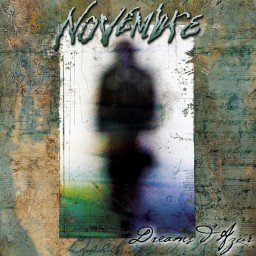
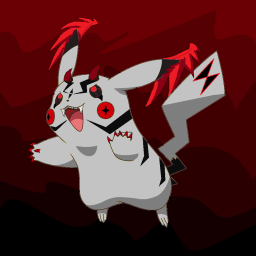 SilentScream213
SilentScream213
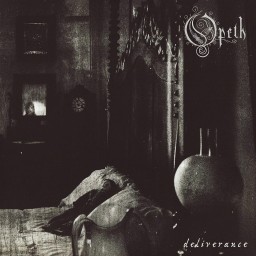
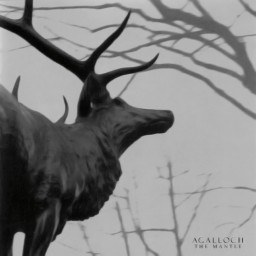
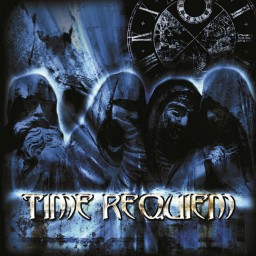
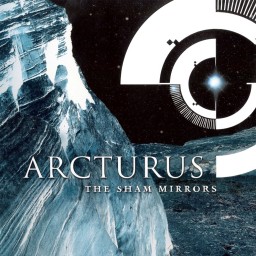

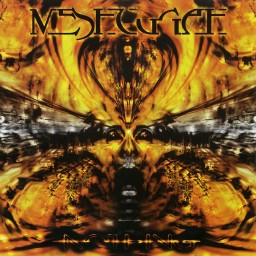
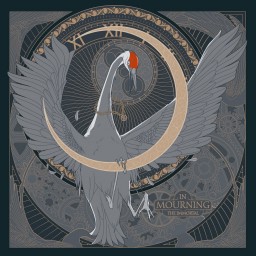
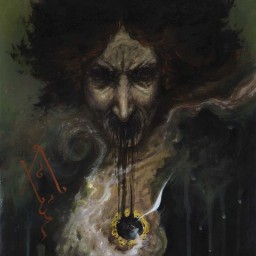 Vinny
Vinny
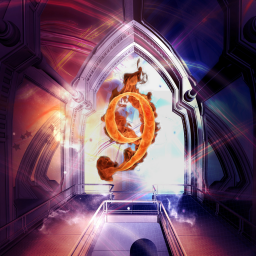 Shadowdoom9 (Andi)
Shadowdoom9 (Andi)
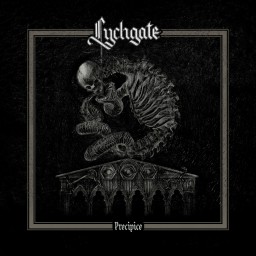
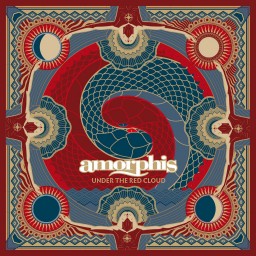
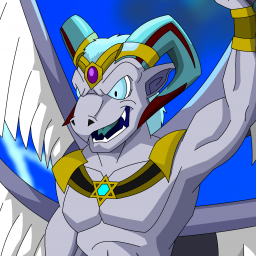 Rexorcist
Rexorcist
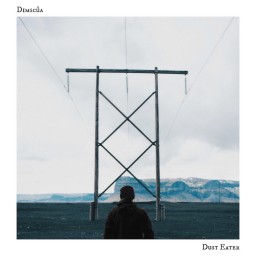
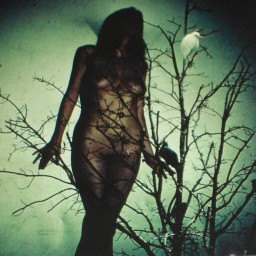
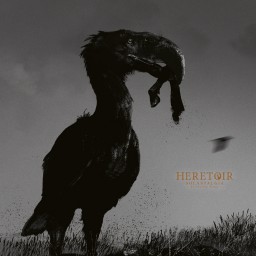
 Saxy S
Saxy S
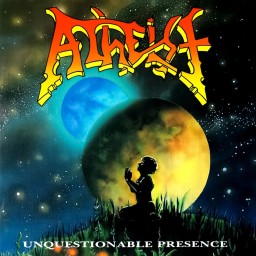
 luajaz
luajaz
